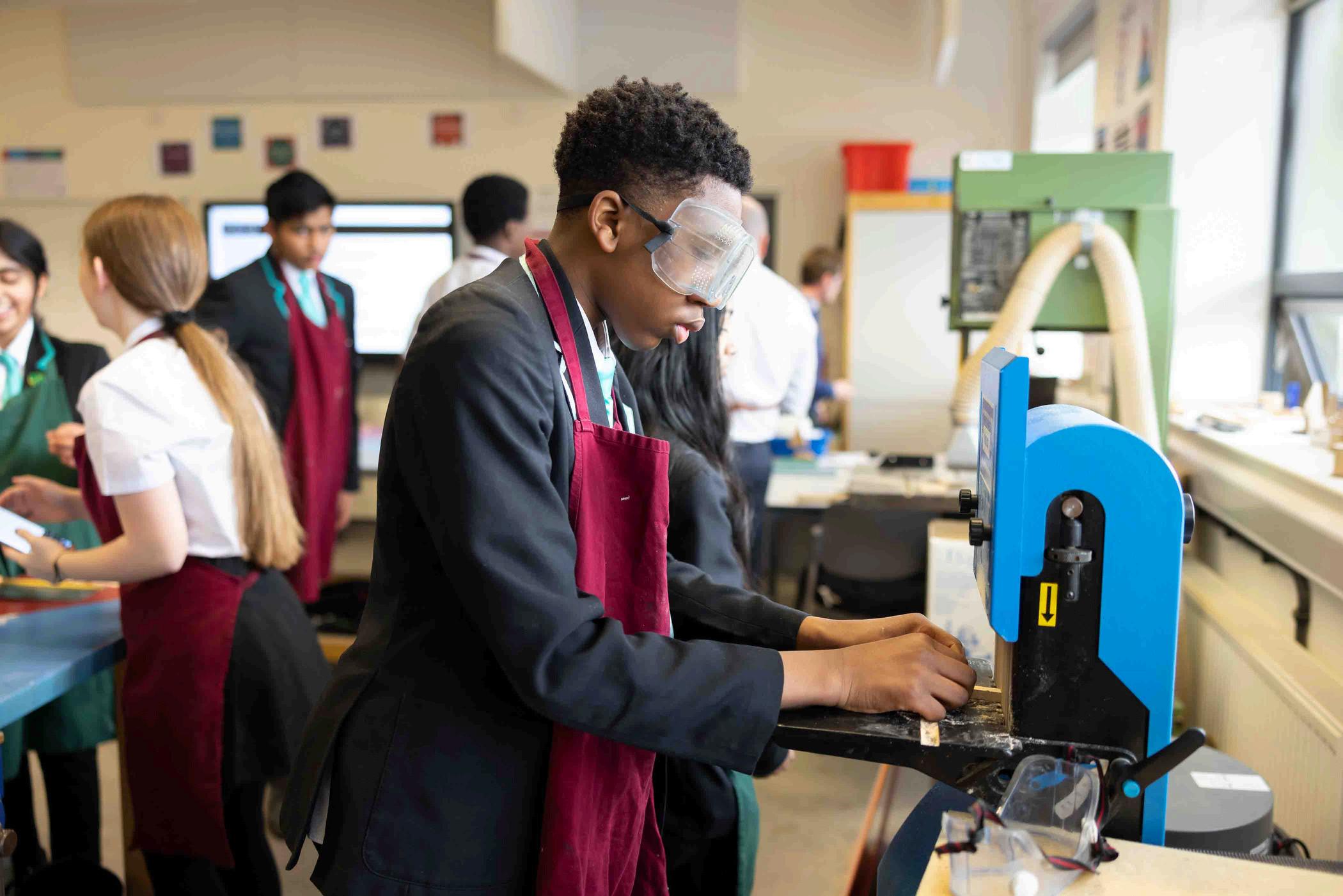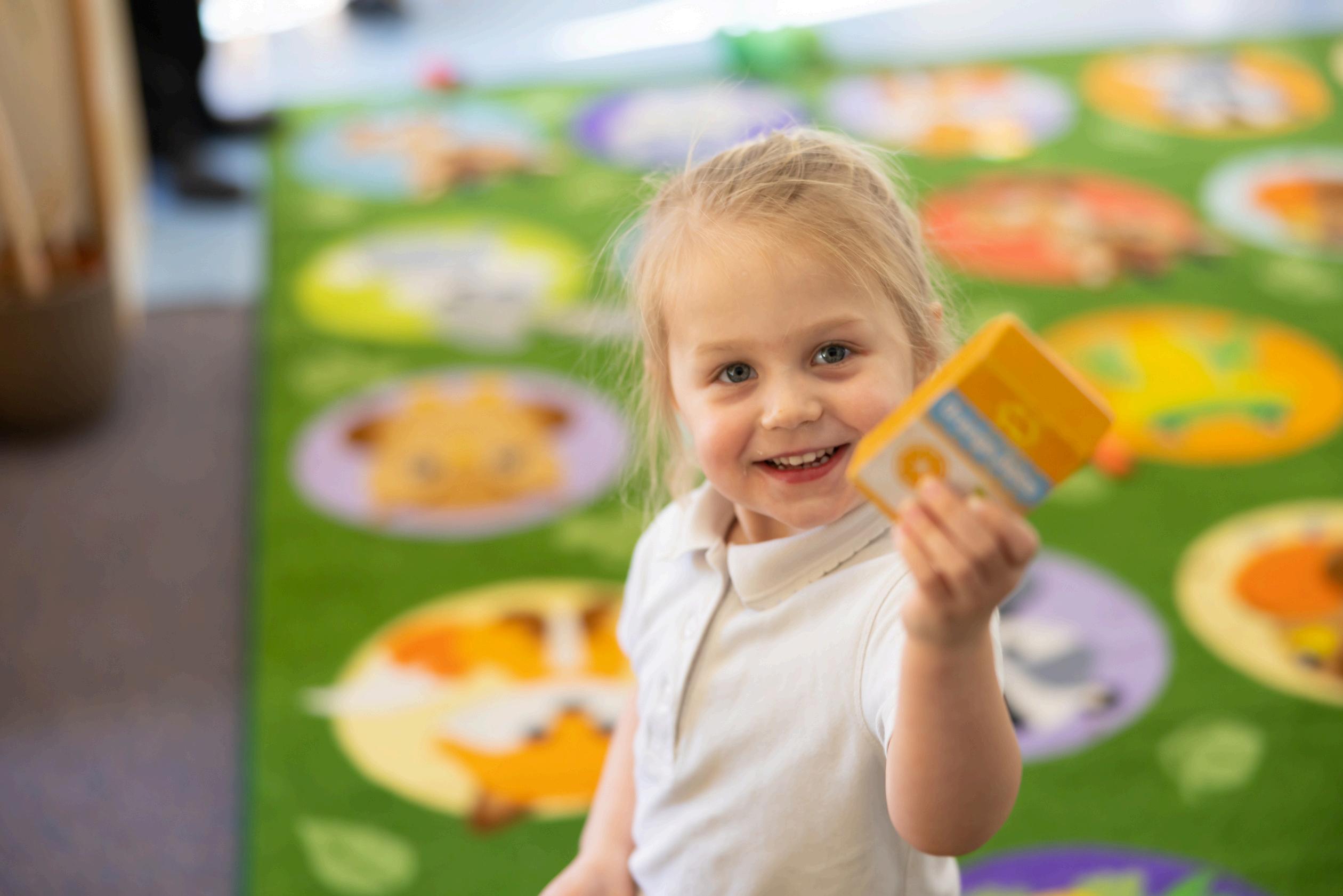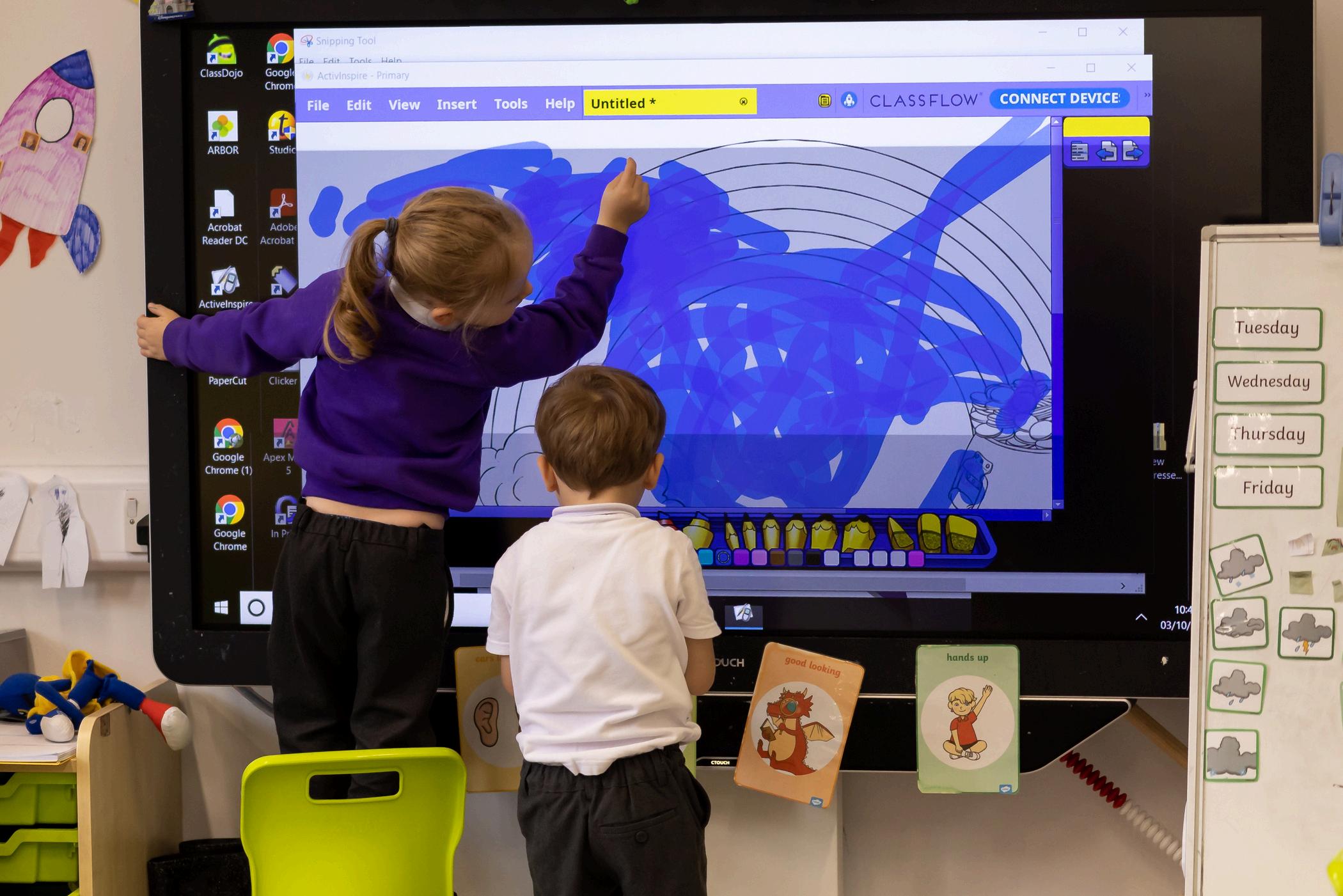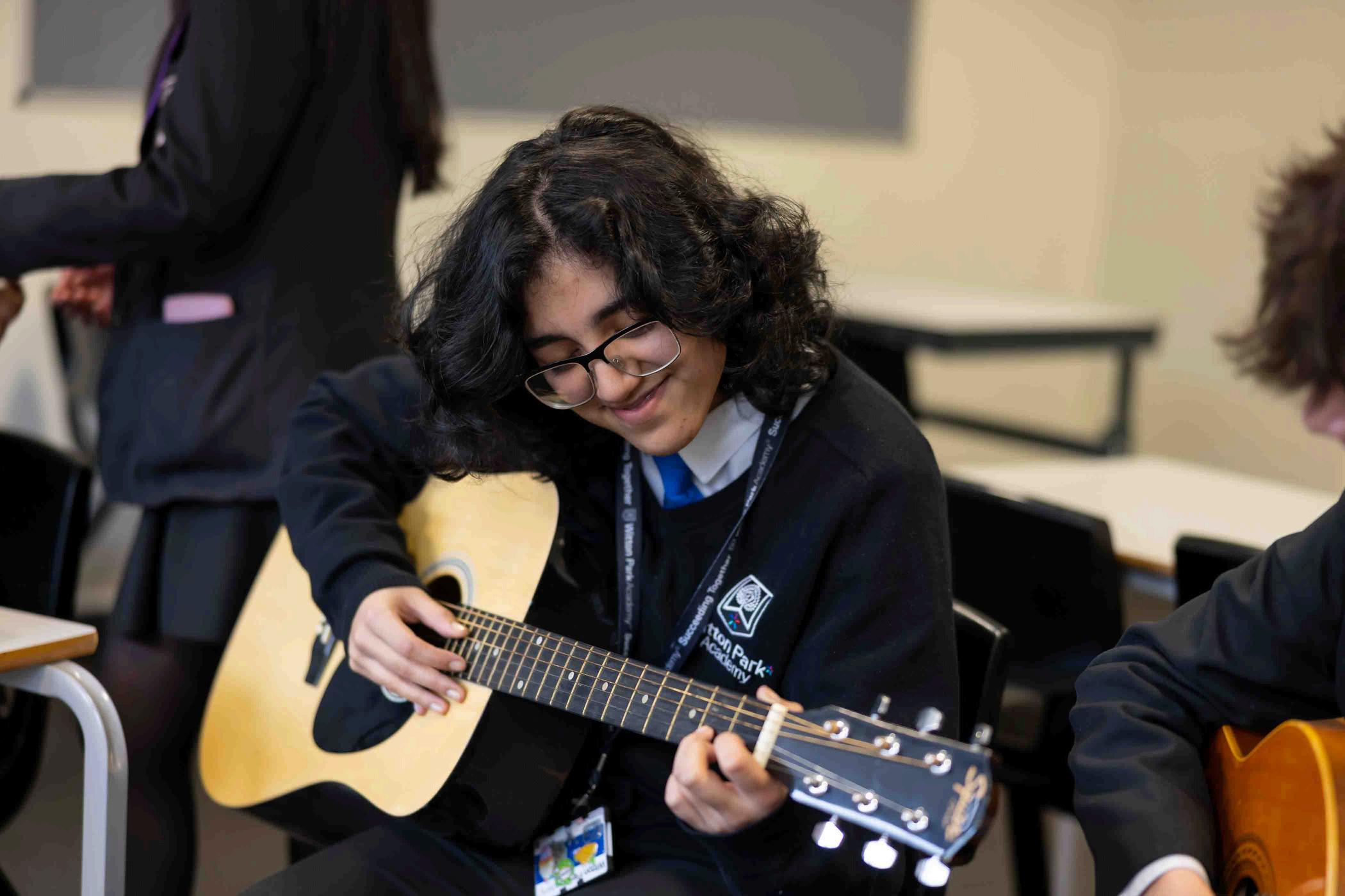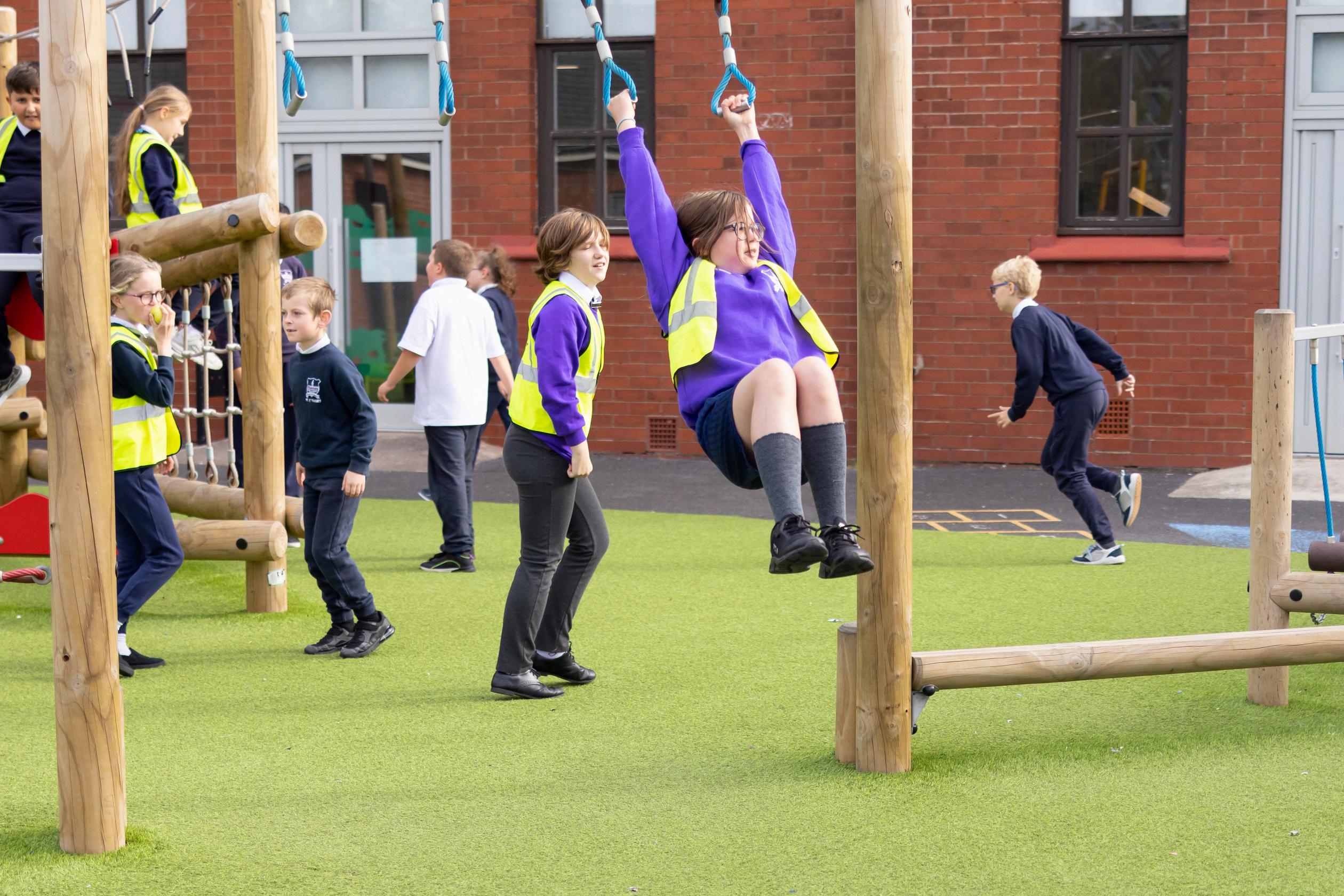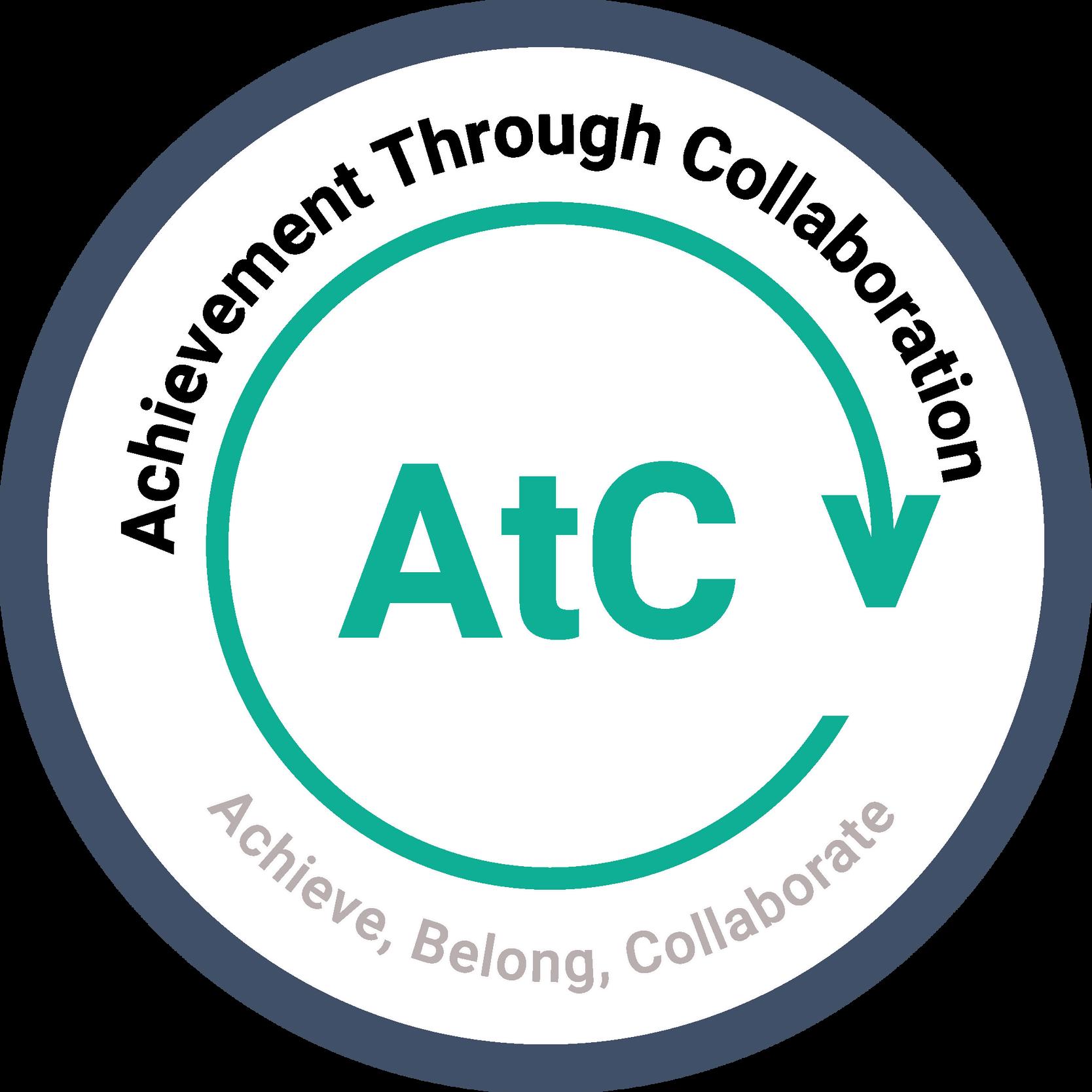




Supporting schools to offer an inclusive, ambitious and enriching education for all pupils so that children can secure good outcomes for the next steps in education, training or employment.
Supporting schools to create a culture of continuous improvement through self-evaluation, challenge, support and appropriate action.
Finding ways to create a high-performing working culture for all staff that promotes collaboration, aspiration and support. Recognising the critical value of high-quality teaching and championing the profession.
Recognising the importance of the effective and efficient use of resources for the benefit of all schools in the trust and the wider education system.
01 02 03 04 05
The board and leadership team create a culture of ethical leadership, anchoring the trust’s strategy in the needs of its schools, the communities they serve and the wider educational system
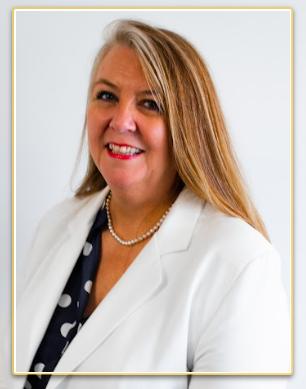
A while ago, I watched a Ted talk by Dr Adam Grant. In the TedTalk, Adam described research from Michael Hausman where the performance of 50,000 people in a range of jobs was tracked As part of that data, Michael was able to predict job performance and the likelihood of people staying in their job based upon the web browser people were using
He was surprised to find that Chrome and Firefox users were on average “better” performers and stayed in their jobs longer than users of Safari or Internet Explorer! On a superficial level, you’d be tempted to say- if you use Firefox it’ll make you more productive and as CEO I could be led down the path of mandating the use of Firefox to improve outcomes at AtC.
However, things are never that simple. What became clear through the research, was that it wasn’t the browser but the act of questioning the default that increased productivity. Internet Explorer and Safari came pre-installed on phones and computers. The decision to use Chrome or Firefox was arrived at by employees who wondered if there was a better option (browser) available and took the initiative to seek them out
It wasn't about the browser, it was about resourcefulness and creativity The kind of person who upgrades their browser is also the kind of person who asks; is there a better/more creative way to do my job; can I reinvent the way we work together? And that ultimately makes people better at their jobs and helps them create jobs they want to stay in
And that’s why I’m so proud to be CEO of Achievement through Collaboration. What this review of the year shows is that we are an organisation full of people who ask the right questions and seek out the better options. With children at the heart of everything we do, we pursue better ways of working together. We work in trust together to ensure that our values of achievement, belonging and collaboration serve our children, our staff and our communities well
JANE CHAMBERS
Chief Executive Officer

“A SMOOTH SEA NEVER MADE A SKILLED SAILOR” FRANKLIN D ROOSEVELT

With so much to celebrate and with even more to shout about across our Trust, we are so pleased to introduce the very first edition of ‘The Academy’, our annual AtC publication which captures some of the wonderful, innovative, and in many cases, transformational work that has taken place across our schools in the last year.
First, we would like to extend our thanks to our contributors, who have taken the time to share some of their triumphs, challenges and experiences from the last academic year. We hope you find the pages of this issue filled to the brim with the authentic voices of our students, staff, teachers and leaders. Finding inspiration from within is what this publication is really all about.
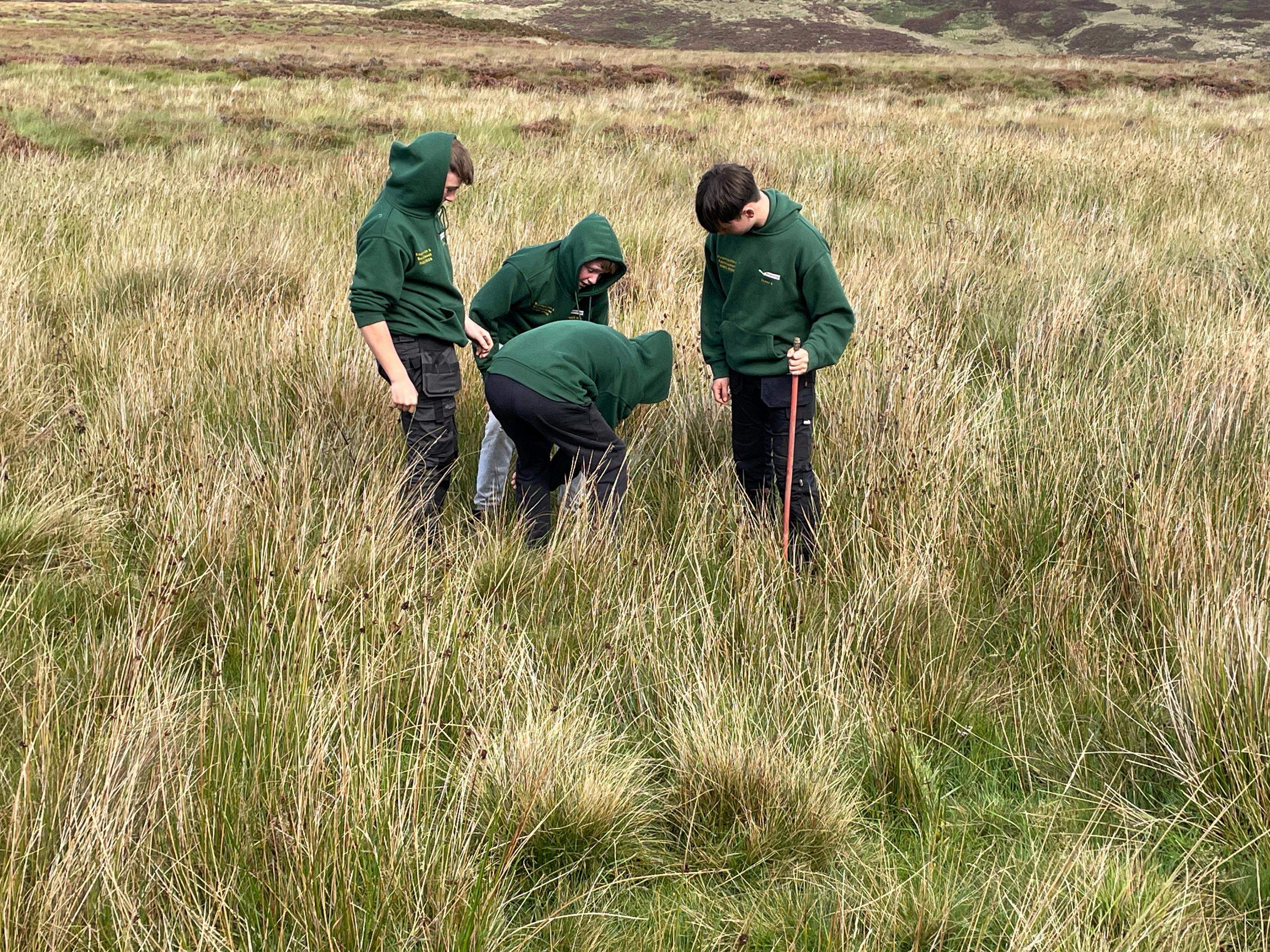
Our Sustainable Schools Mission and our Vision 2030 has underpinned lots of the work and decision making that has taken place across our trust this last year.
This first edition focuses on “better worlds” and the power schools and trusts have in shaping the way our children see, experience and ultimately engage with our planet
With the DfE paper on: ‘Sustainability and the Climate Change Strategy’, we are even more aware of our responsibility as educators to equip students with the knowledge and skills required
to make a positive impact on our planet
Over the course of the last academic year, our schools, our staff and our students have made a commitment to drive positive climate action and embrace sustainability In a world in which climate anxiety affects over a third of young people, we believe the work we are doing really can help to create a better world
EDUCATION

We’re on a mission...
SUSTAINABILITY AND ACTION FOR CHANGE.
Achievement through Collaboration Trust is a MAT on a mission; a mission to secure learning that makes a world of difference!
At our Trust, we regularly ask ourselves and our students if what people learn is relevant to their lives, their futures and the survival of the planet.
S u s t a i n a b i l i t y & A c t i o n f o r c h a n g e
We’ve already reduced our carbon footprint, founded a radical digital ecosystem to reduce paper waste, tackled vampire technology, are delivering a responsible production and consumption policy and have established food banks and green pantries in nearly all of our schools Now, our Sustainability Network is driving the mission to change the way students learn and think about sustainability using our Four A+ model: Awareness, Agency, Action and Achievement.

Guided by the 17 SDGs, young people are: planting orchards, picking fruit, creating produce to sell and donate, working globally to problem solve and review business model sustainability in multiple languages, collecting, reusing and recycling plastic on beaches and in rivers to support clean water, lobbying local authorities for policy change around waste disposal, presenting (on national stages) innovative solutions to food waste and so much more. Most importantly, they are immersed in the very real narrative of climate responsibility, informed action and powerful learning. To find out more about how you might adopt the Four A+ model in your school or faculty, get in touch with the education team or reach out to your school’s sustainability network leader
“DEEP QUESTIONS ARE NOW BEING ASKED, MORE WIDELY THAN EVER BEFORE, ABOUT EDUCATION AND ABOUT HOW FAR IT’S CONTRIBUTING – OR NOT – TOWARDS MAKING A LIVEABLE AND SUSTAINABLE FUTURE”
01 Awareness: Sustainability issues are integrated into learning
02 Agency: Learners choose what to focus on and what to change.
03 Action: Learners are empowered to take responsible action for measurable change.
04 Achievement: Learners should be able to see the impact of their work in creating a better world.
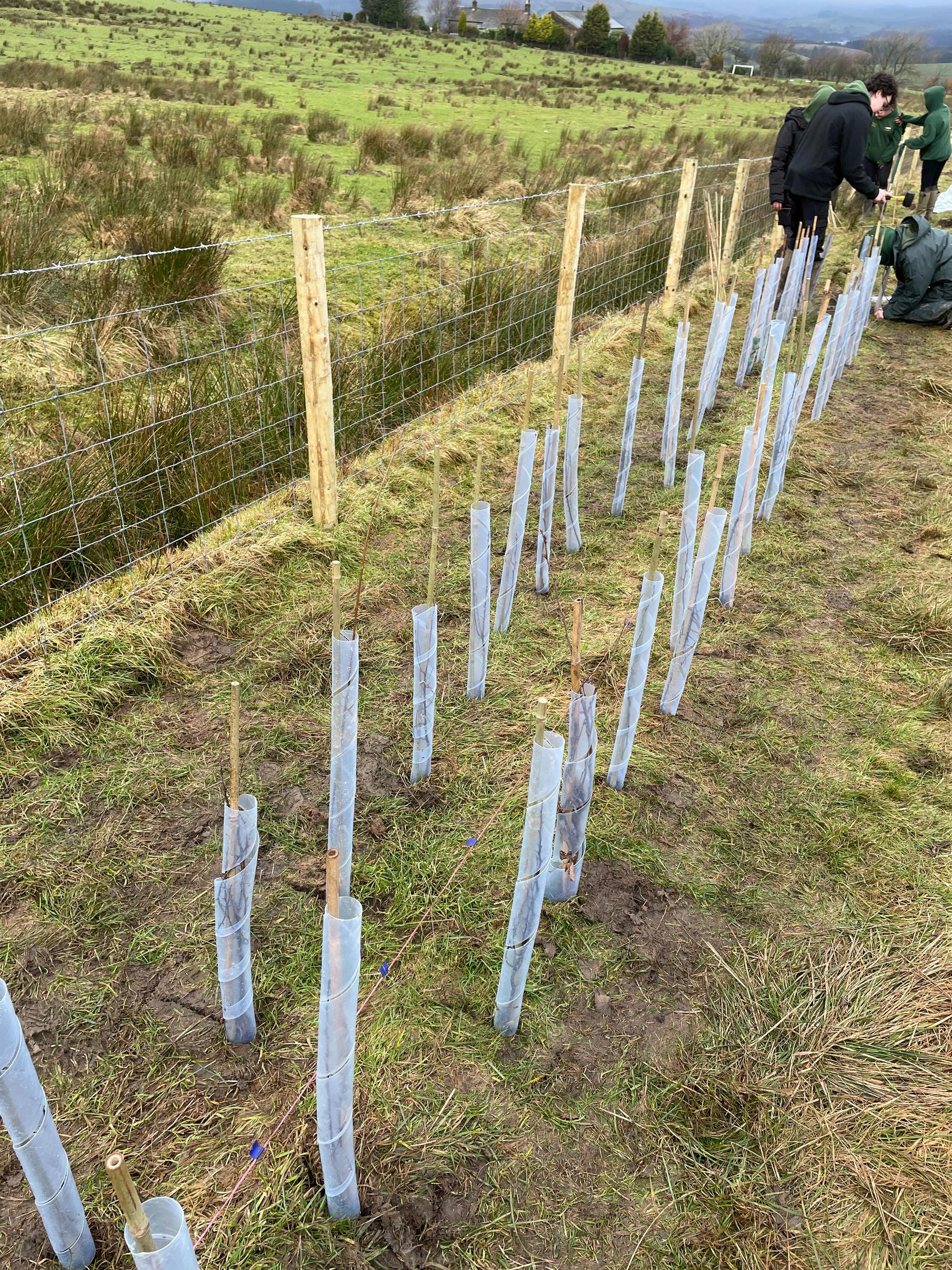
‘Since spring of 2020, the British education system faced its most challenging period for generations: sustaining learning through a pandemic The whole sector met this challenge with great resilience Now, the UK must show the rest of the world how our education system can transition out of the pandemic and, in doing so, face the even greater environmental challenge ahead of us, by Building Back Greener
The challenge of climate change is formidable For children and young people to meet it with determination, and not with despair, we must offer them not just truth, but also hope Learners need to know the truth about climate change – through knowledge-rich education. They must also be given the hope that they can be agents of change, through hands-on activity and, as they progress, through guidance and programmes allowing them to pursue a green career pathway in their chosen field ’
At AtC we are filled with optimism and pride when we see how hard our schools are working to raise climate conscious students and empower them with the knowledge and skills to make change happen We take a look at some of the brilliant things our schools are doing to make this commitment to sustainability a reality
THE MOST WIDELY ACCEPTED DEFINITION OF SUSTAINABLE DEVELOPMENT IS:
“DEVELOPMENT THAT MEETS THE NEEDS OF THE PRESENT WITHOUT COMPROMISING THE ABILITY OF FUTURE GENERATIONS TO MEET THEIR OWN NEEDS ”
AS EDUCATORS - HOW DO WE CREATE THE RIGHT CONDITIONS FOR THIS TO HAPPEN?
FORMOREINFORMATIONVISITTHE DFESUSTAINABILITY ANDCLIMATECHANGESTRATEGY &ACTIONPOLICY

BY RICHARD SPENCER BOWLAND HIGH SCHOOL - CLITHEROE
‘When can I get the green jumper sir?’ This was the opening comment from an enthusiastic year 6 pupil at a recent Open Evening at Bowland High, when we met for the first time at the Auction Mart car park. Bowland high is an oversubscribed rural school in the heart of the Forest of Bowland AONB, Ribble Valley, Lancashire, hence the need for the additional car park provision on such occasions
12 years ago Bowland’s curriculum design shifted direction to a vocational focus. Alongside the traditional academic GCSE options, Construction and Hair and Beauty were added, which are by no means unique options in the vocational landscape, but what stood out, was the third consideration. BTEC Level 2 Countryside and Environment qualification was, and still is, a practical based two year course Guided Learning hours (GLH), assessment and individual units were carefully considered, but what it needed most was a community buy-in The practical aspects included dry stone walling, hedge-laying, sheep and pheasant husbandry, tree planting and basic forestry skills, therefore, put simply, we needed a farmer and farm to collaborate with
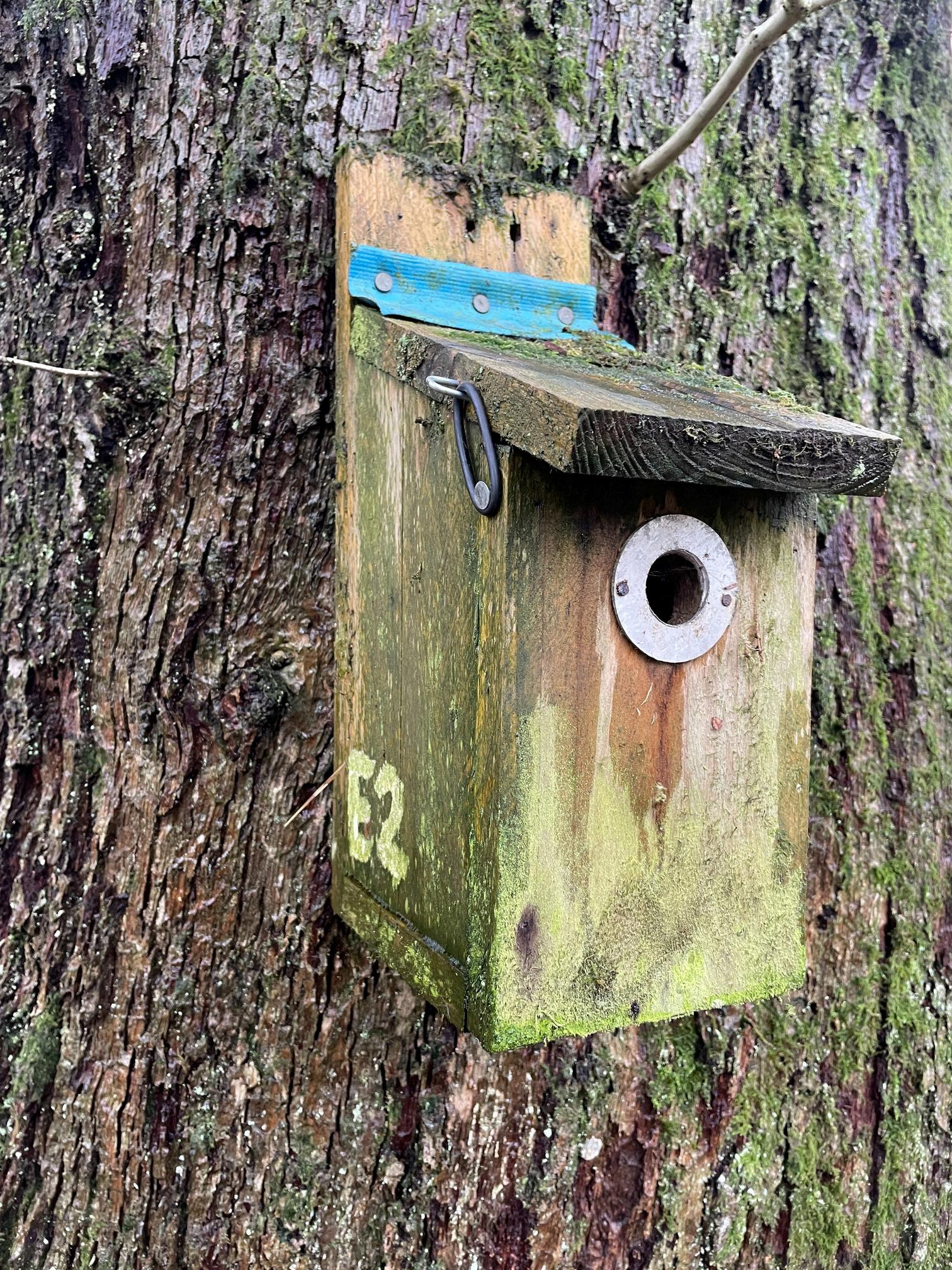
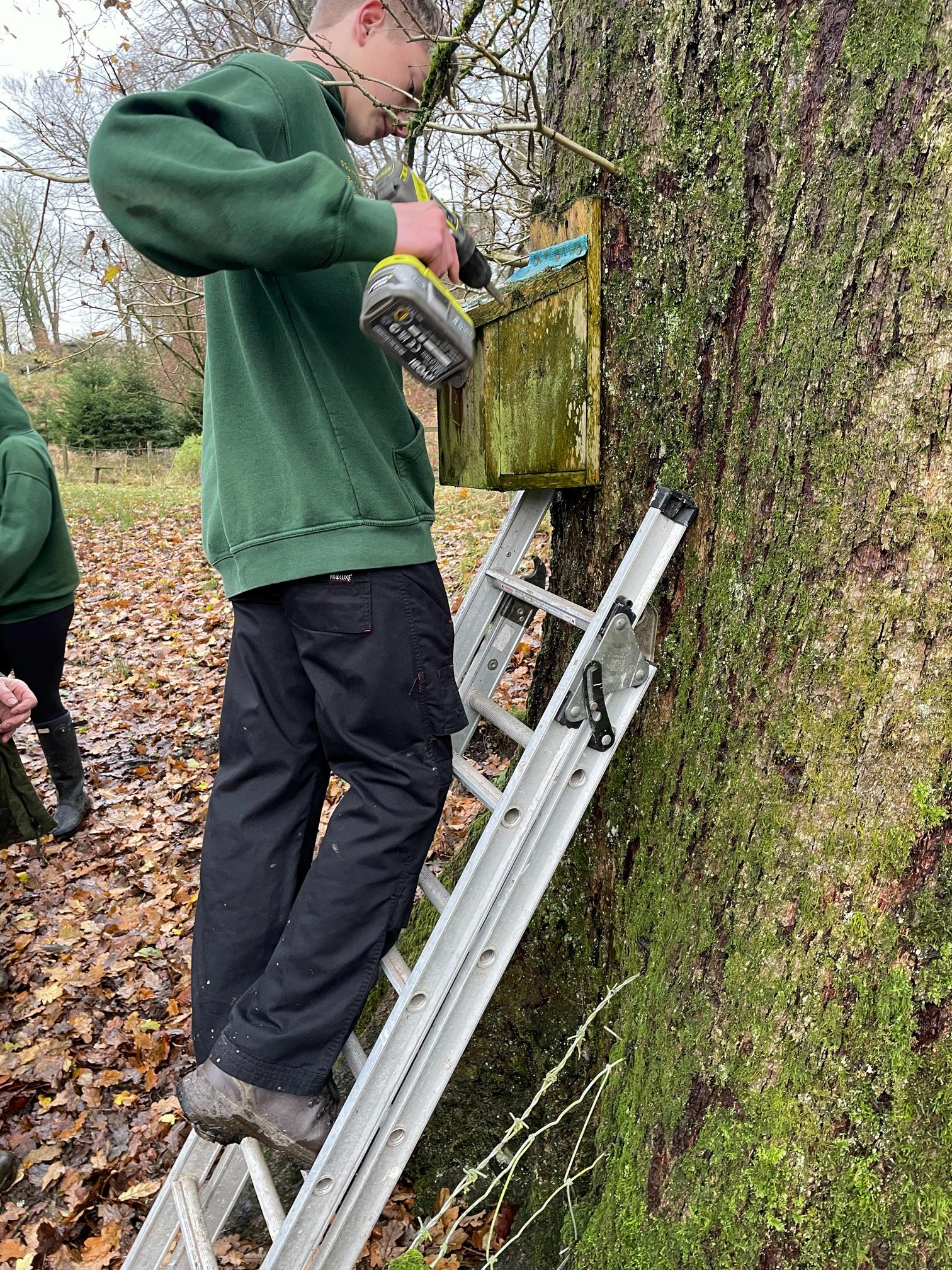
Croasdale House Farm agreed, so with access to the school minibus, risk assessments approved, parental consent obtained, we set off each Monday afternoon to learn and develop the practical skills to enable each cohort to gain the qualification.
After the first couple of months, the messages started to come in; “could your lads sort my dry stone wall out? Could you plant a 100m hedge row for us?”
Organisations such as United Utilities, The River Ribble Trust, Forest of Bowland AONB, Woodland Trust, Tree Council all became community partners, alongside a second farmer, Russell Bury
The initial cohort of 10, were all boys, many not suited to the academic pathways previously on offer, but as the years have progressed there has been a gender rebalancing. The key to the success though, is many of these pupils are already in the agricultural industry though local generational family links. They are our future farmers Others had aspirations to be involved in veterinary professions, some have found inspiration from the talks arranged and subsequently choose an environmental, sustainability pathway as their future green careers As the Government policy states ‘through hands-on activity and, as they progress, through guidance and programmes allowing them to pursue a green career pathway in their chosen field’.

This course has a high profile around school and the wider community, hence the Year 6’s enthusiastic comments Besides the qualification, this course allows the school to contribute to some of the UN’s SDGs, as well as the Government's Sustainability and Climate Action policy. Specifically, the protection of the environment. Now, our schools must be the driving force in many of the other goals listed. The two which have the most measurable impact are: the conservation of energy usage and how we manage waste.
Bowland, over the last 15 years, has benefited from several building projects, which has allowed us to ensure ground water heating facilities, extension solar panels and new lighting and heating systems to be installed. The next step is how, in this digital age, can we reduce usage in the quest towards our nation’s Net Zero Targets; Power down Fridays / Turn Off Tuesdays! (Schools and universities represent 36% of total UK public sector building emissions.)
Waste in schools, whether that be food or consumables, is currently too much and we need to continue to educate the pupils, our ‘Agents of Change’ to embed our desire to reduce consumption, recycle resources and use creative ways to produce balanced educational establishments that are both
sustainable as well as being suitable and well resourced to provide the best educational experiences for all stakeholders ‘We must level up within a context of sustainability, giving all children, young people and adults the knowledge and skills to thrive in the green economy and to help restore nature’
Maybe we should all be wearing a green jumper.
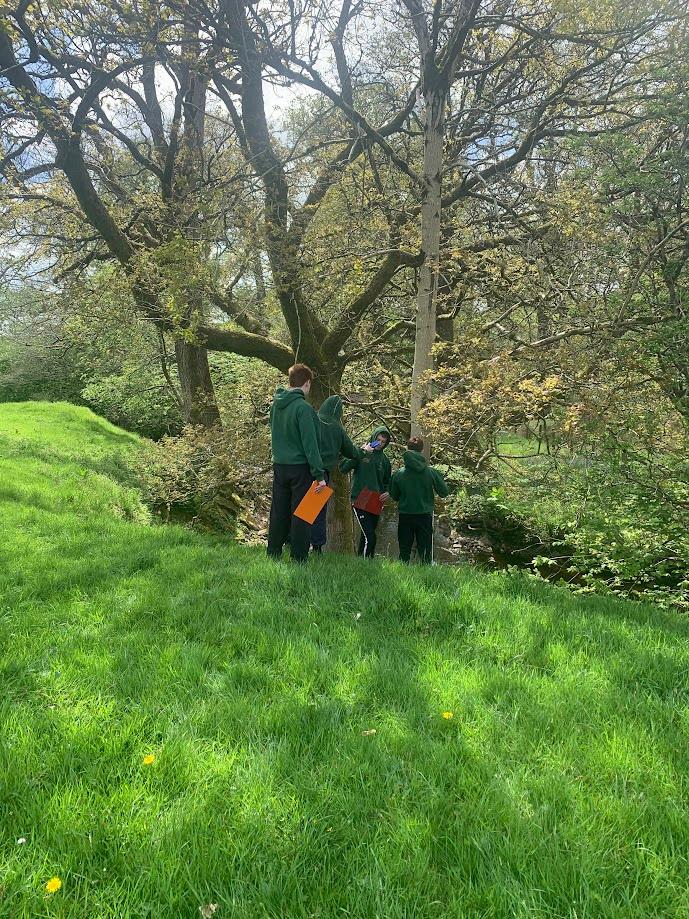
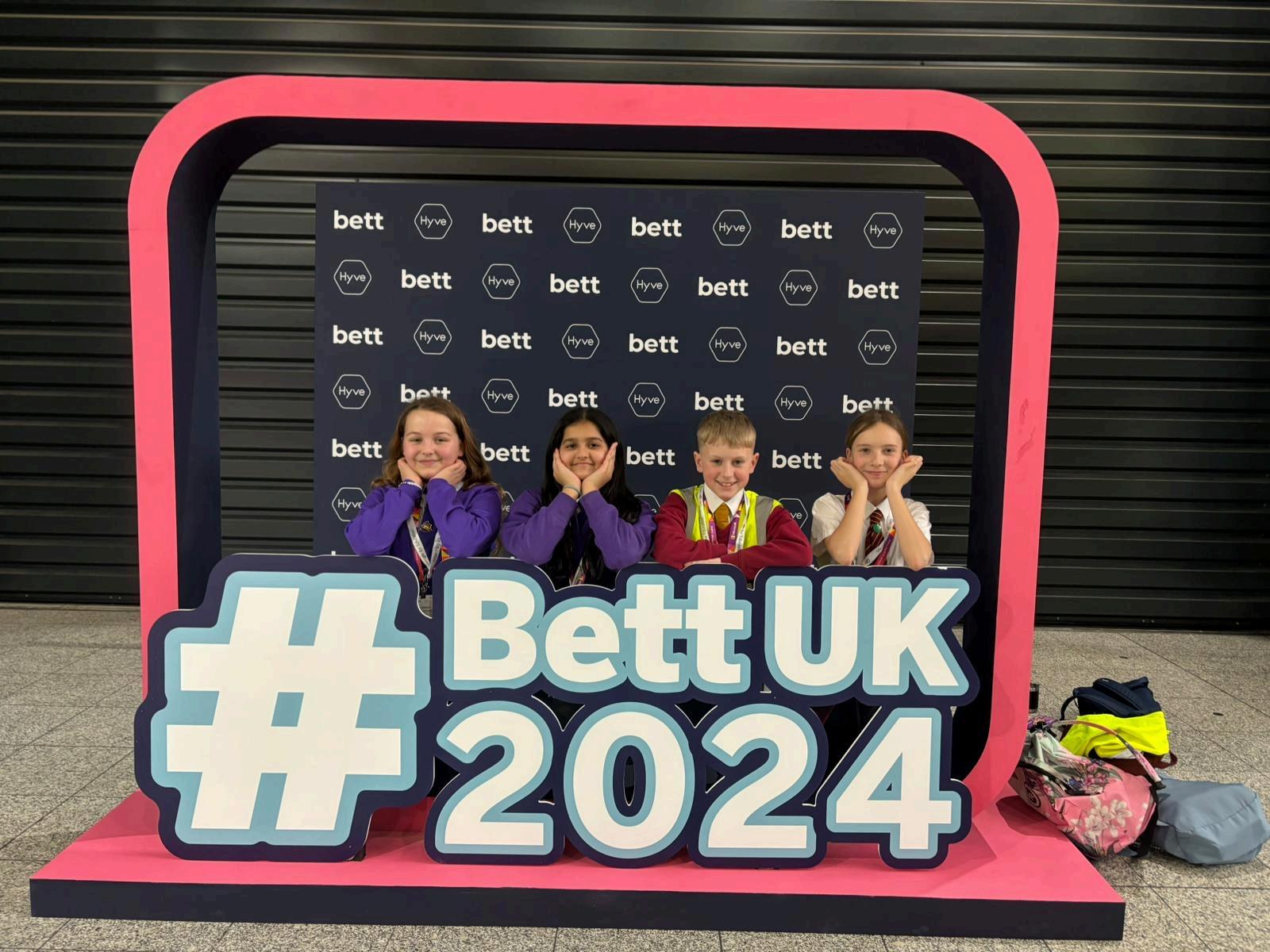
COVER STORY: CHANGING LIVES AND BETTER WORLDS
From our pre-school classrooms to our school leaver ‘Legacy Projects’, pupils at ATC academy schools are on a journey for sustainability and change
Set in coastal towns, urban centres and rural hearts, ATC schools are geographically and demographically diverse but our sustainable schools mission is the same; to collectively alter the earth's ecosystems and human actions for positive change
It’s not enough that our children know about climate responsibility and sustainable development, we want our children to lead the critical changes required to secure the future survival of our planet
In our pre-school classrooms children become “Climate Aware”, being able to explain climate change and taking an active part in Kids Against Plastic projects, gathering plastic in their beach school, reusing it to form art displays about animal welfare, collecting plastic bottles to build greenhouses, growing vegetables and creating digital books of the journey of the plastic bottle in literacy and computing.
Our KS1 and KS2 “Climate Activists” find their voice and use the platforms we provide to make a real difference. SDG 2 - Zero Hunger, was our focus last year. Students from both our primary schools engaged with the national Food Bank Association and their own school food bank to create a series of Youtube videos called ‘Cooking in the Community’ to help local families make healthy and nutritious meals from the produce they can get at the food bank
In Blackpool it is estimated that food banks, including those at our schools, support over 14,000 local residents each week. The pupils leading the project were finalists at this year’s Annual Innovation X award held at BETT in London, where they presented a powerful narrative on sensible food waste solutions and the drive towards zero hunger Judges and audience members alike were wowed by the power of their knowledge and rhetoric on the topic Their voices can now be added to a much bigger conversation for change as we continue to empower students to speak and be heard on subjects that matter to them
Our KS4 “Global Change Makers” continued the zero hunger mission, raising awareness, funds and food aid for the children impacted by war and conflict around the world. The power of charitable fundraising and community action has been a vital part in ensuring that pupils are well informed about events around the world and are able, in their own way, to educate others, break down barriers and change perceptions
Collaborative projects across our schools speak to the importance of being interconnected and seeking solutions together.
The ‘Apple Sauce’ project, saw students from Witton Park and Bowland High collaborate on the Bitton Bites presentation, picking apples from the school’s apple orchards to prevent unnecessary waste, and making apple sauce whilst actively promoting responsible production and consumption The produce was sold at local markets and a highly lucrative cottage industry was born
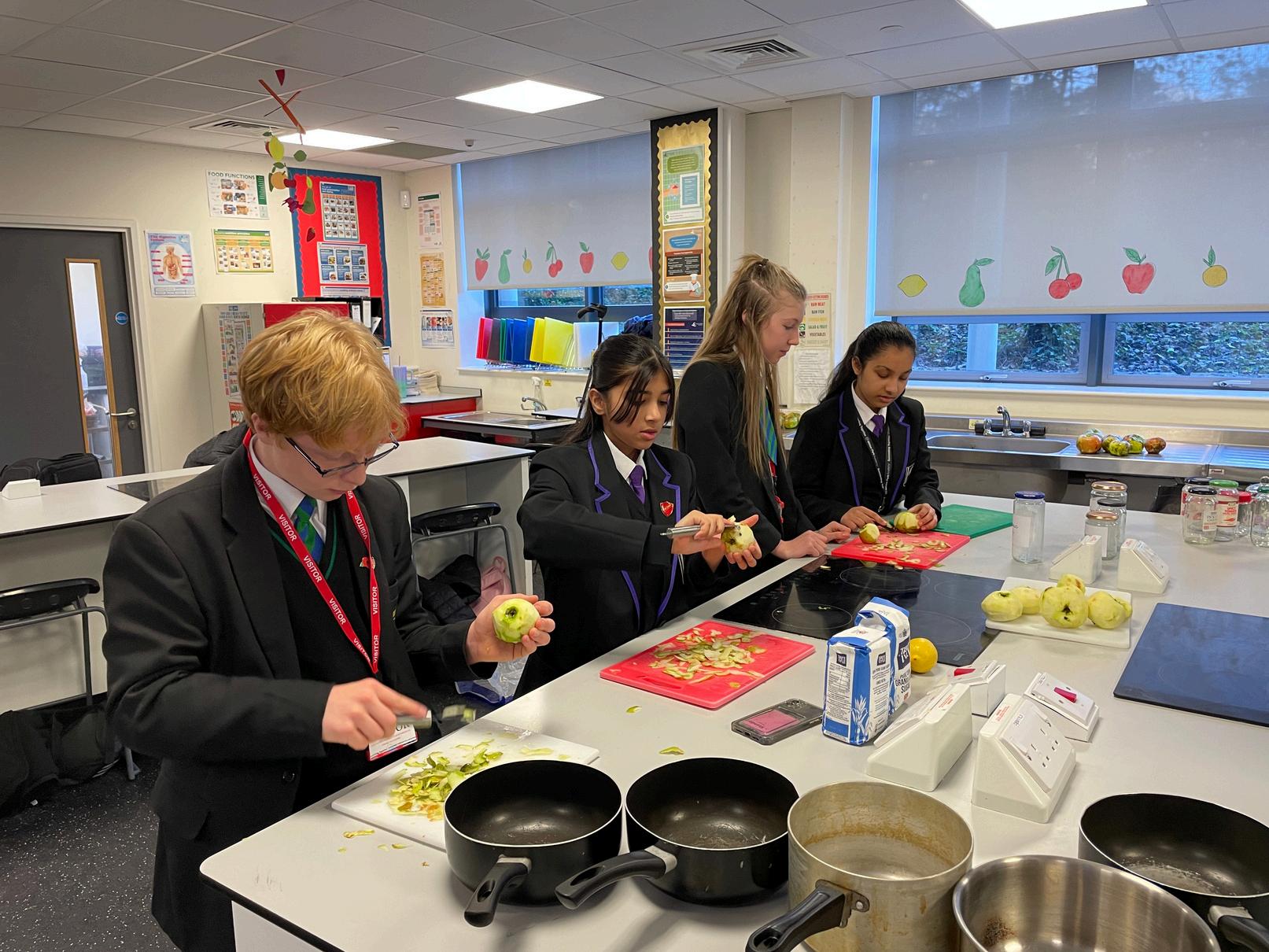
KS3 students were also finalists at the BETT awards and presented on the stage in London. Despite not winning, we are proud to say they were inspired and inspiring. The truth is that the far reaching impact of this type of experience can very rarely be fully measured, but for some pupils it was not only their first time presenting in front of a huge audience, it was also their first time in London, their first time working with a diverse group of peers, their first time on the train and the underground, their first time being part of something they felt mattered to them, which shows, that whilst these projects are designed to change the world in a small way, they are actually changing lives in a BIG way.
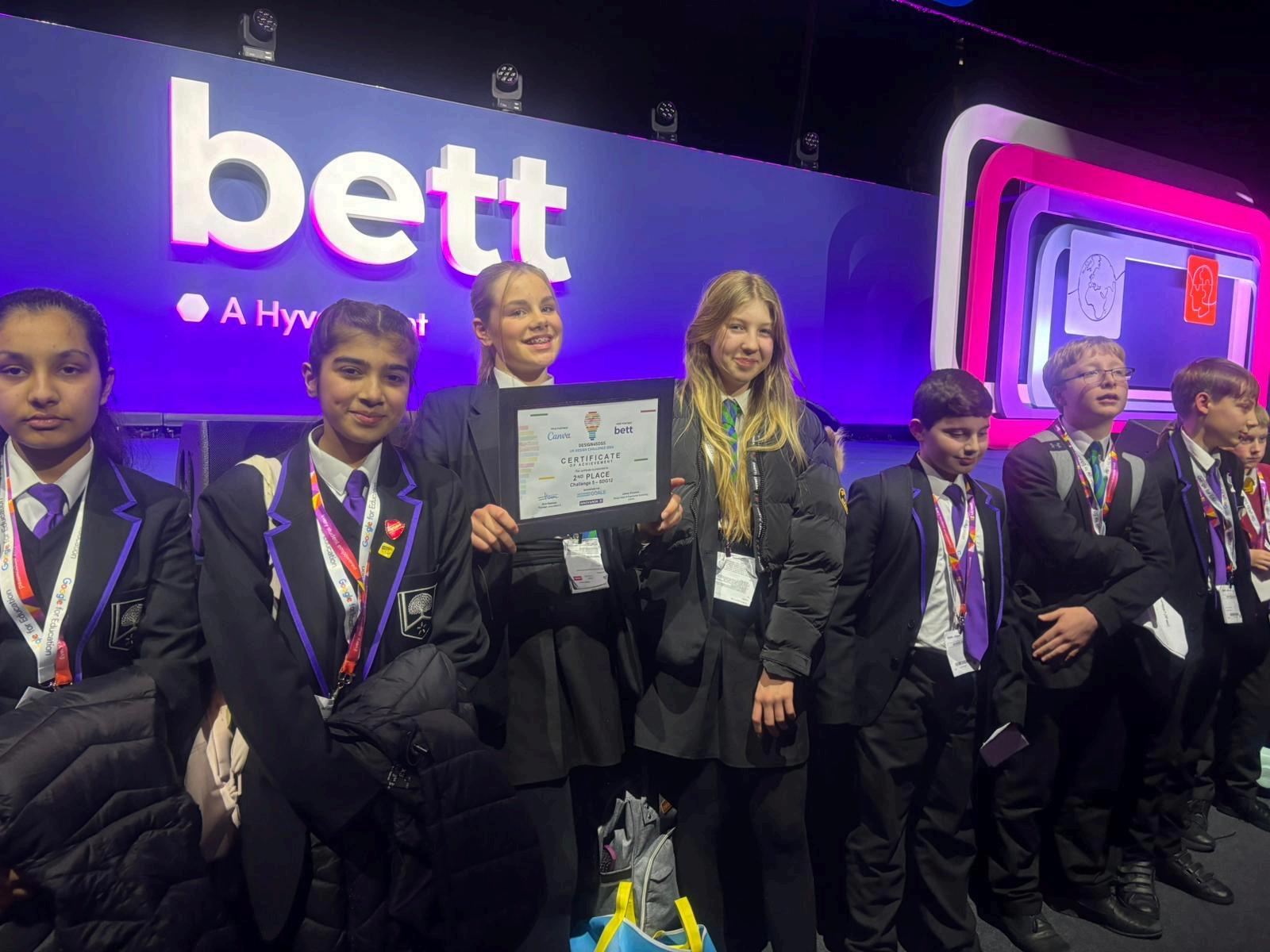
“It was so good... I thought I would be too nervous but we did it!”
Colum McCauley from Witton Park Academy shares inspiration from the OCR Geographical Association Conference.
When there are so many possible ways to “Green up” your curriculum, it can sometimes be daunting and time consuming figuring out where to start Thankfully, one of our Geography teachers has kindly shared some of the best projects, organisations and resources to help you and your phase or faculty get started

The National Education Nature Park launched in Autumn 2023 This is a free programme to provide resources, support and guidance for teachers in order to put nature at the heart of education

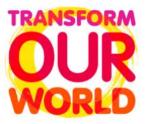
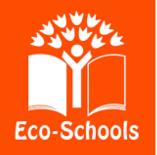
Let’s Go Zero is a national campaign uniting schools in working to become carbon zero by 2030 There are already over 2,900 schools nationally signed up. The campaign is working alongside the government to ensure the necessary support is available to support schools in working towards this goal
Transform our world is coordinated by the environmental charity Global Action Plan which has the aim that by 2030, every child will leave school prepared to act collectively for the good of people and planet
The Eco-Schools programme provides a seven-stage framework that helps empower students to make a difference in their school and local community There are 10 Eco-School topics in total, including topics such as biodiversity, energy, and healthy living
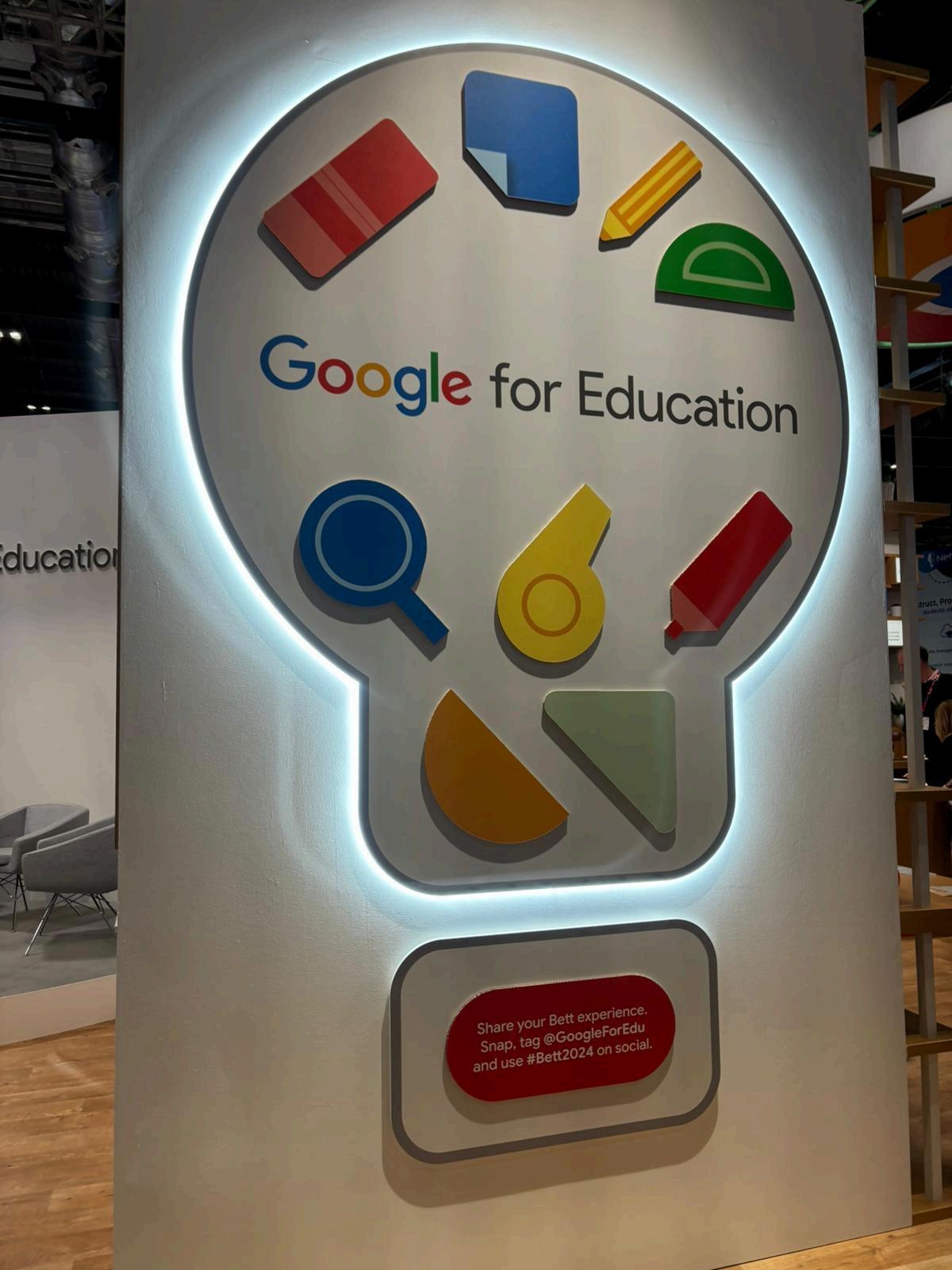
AtC is proud to be at the forefront of educational innovation, harnessing the power of technology to enhance teaching and learning
Our commitment to digital transformation led us to adopt Google Workspace for Education, a powerful suite of tools that has revolutionised our approach to education.
Google Workspace offered a comprehensive solution, providing our teachers and students with a one-stop shop for collaboration, creativity, and effective communication Google Classroom, our primary learning management system, has streamlined the organisation and delivery of lessons across our Multi-Academy Trust. Teachers can easily share
assignments, provide feedback, and track student progress, fostering a more efficient and engaging learning environment.
Beyond Google Classroom, we have leveraged other Google Workspace tools to enhance teaching practices and support student learning Google Meet enables real-time interactions and group discussions, while online course builders facilitate virtual presentations and professional development opportunities for our staff.
To support our digital transformation, we have invested in a fleet of Google Chromebooks These lightweight, durable devices are designed to optimise the use of Google Workspace applications, providing our students and teachers with the tools they need to succeed
Google Analytics provides valuable insights into student engagement and usage patterns, helping us make informed decisions about our digital strategy. By analysing data from Google Classroom and other tools, we can identify areas for improvement and tailor our approach to meet the unique needs of our students
By leveraging Google Workspace, AtC is empowering our students to thrive in the digital age. Our digital provisions have significantly impacted students in numerous ways, including:
Enhanced Collaboration: Google Workspace tools facilitate real-time collaboration, fostering teamwork and communication skills
Improved Accessibility: Cloud-based tools ensure students can access their work from anywhere, promoting flexibility and convenience.
Personalised Learning: Google Classroom allows teachers to assign tasks, track progress, and offer personalised feedback, catering to individual needs
Digital Literacy Skills: Students develop essential digital literacy skills, preparing them for future careers and success in the digital world
As we continue to embrace technology, AtC is committed to providing our students and teachers with the tools and resources they need to succeed By utilising Google Workspace and other digital initiatives, we are shaping the future of education and preparing our students for a successful and fulfilling future

Preparing
BY ZAITOON BUKHARI ATC TRUST
“As educators work to equip students with the skills and mindsets they’ll need to navigate massive change, teachers and experts must discuss how and why we’re rethinking the role of education.” Future
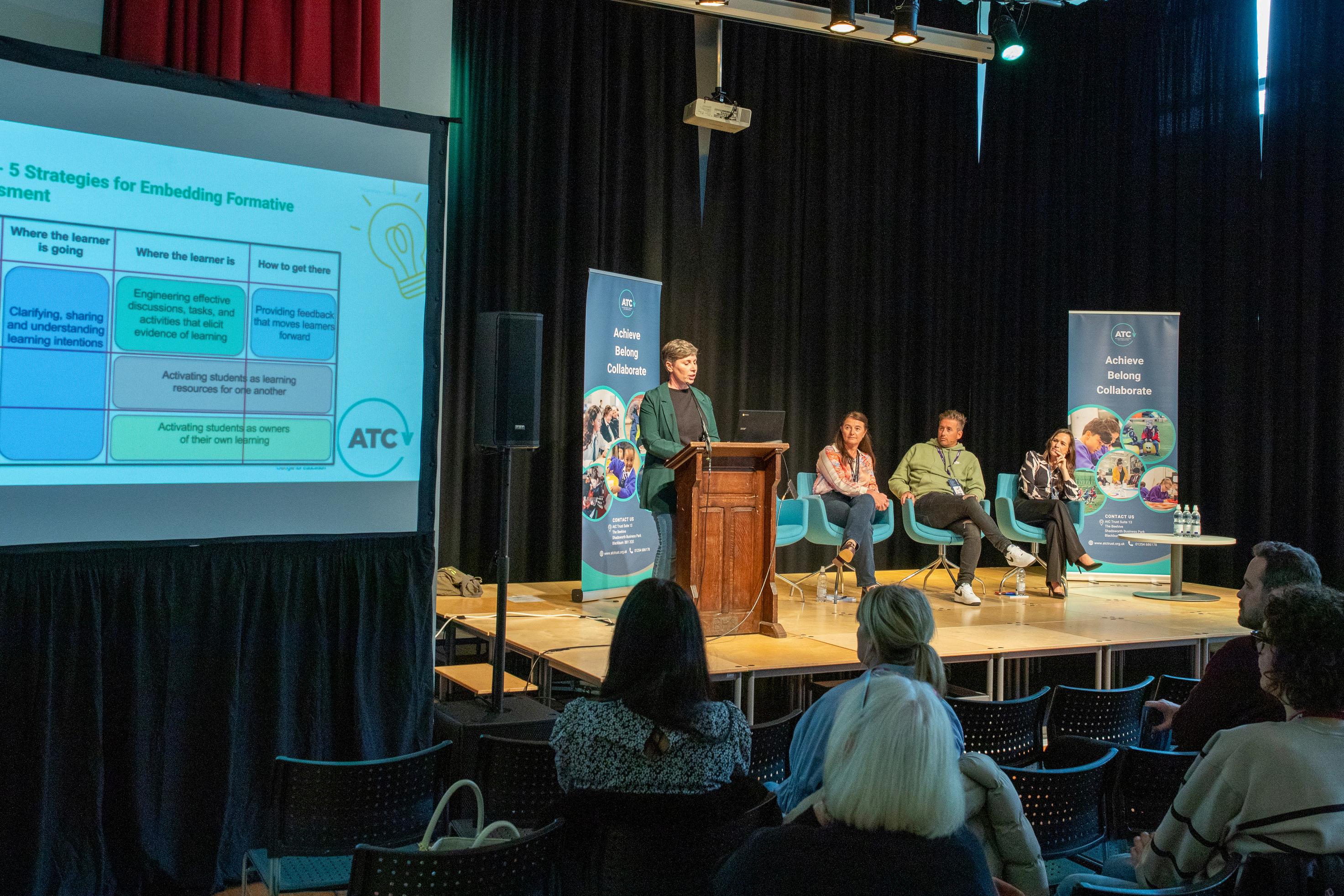
BY TRACY HARRISON
Networking is a fundamental aspect of the work we carry out at AtC and underpins our values of collaboration and achieving together. Our networks, both internally and beyond the Trust, are designed to build and nurture relationships with individuals who can provide support, advice, information and opportunities. As a Trust, we believe the key benefits of networking lead to a positive impact on building knowledge, personal development, and ultimately the success of our organisation
Let’s explore some of these benefits…
Networking facilitates the exchange of knowledge and expertise, which can be invaluable for personal and professional growth:
Learning from Peers: Through networking, individuals can learn from the experiences and challenges of their peers, gaining insights that can be applied to their own situations.
Access to Resources: A well-connected network provides access to a wealth of resources, including industry reports, research findings and educational opportunities
Staying Informed: Networking with industry experts and thought leaders ensures that individuals stay informed about the latest developments and emerging trends, keeping them competitive in their fields
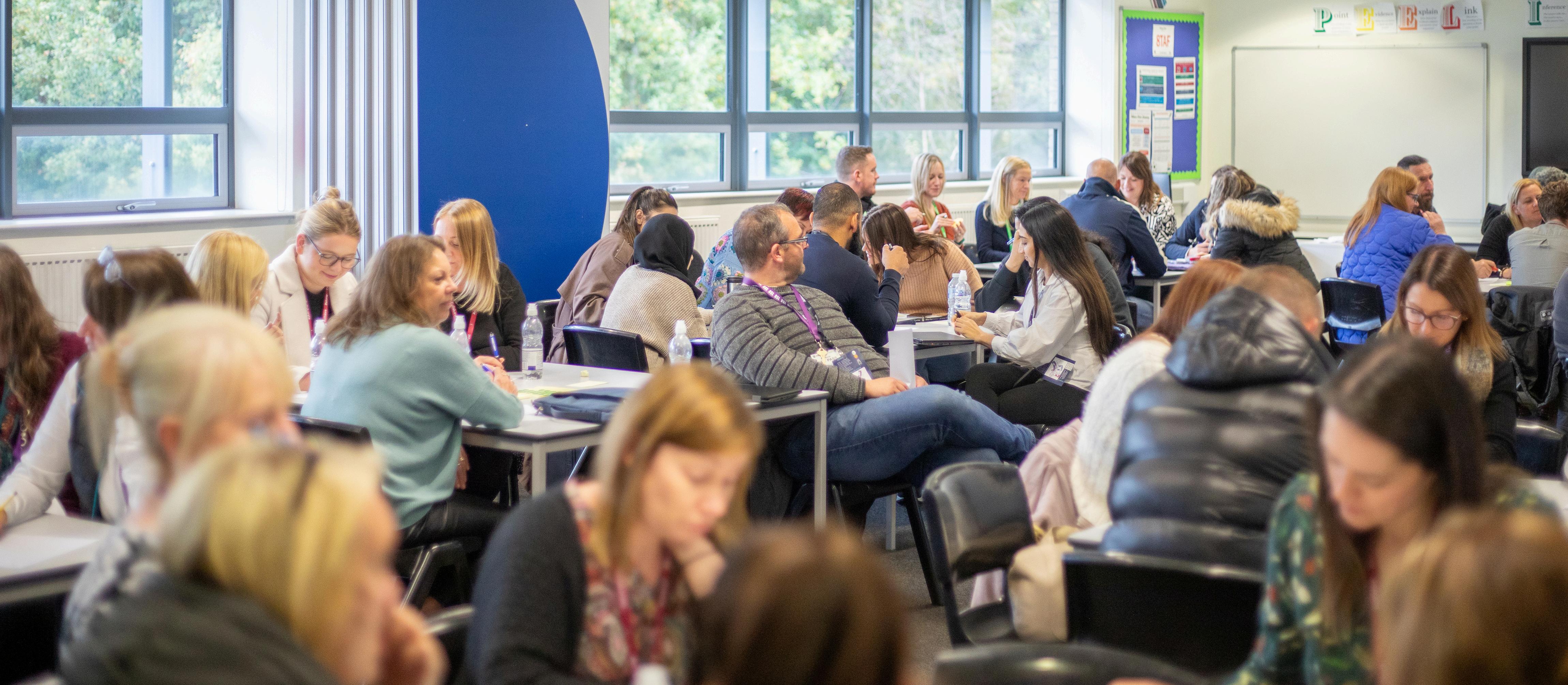
NETWORKING TAKING PLACE DURING LAST YEAR’S INSET DAY - HOSTED AT WITTON PARK
A strong network acts as a support system, providing emotional, social and professional support:
Emotional Support: Networking with likeminded individuals offers a sense of belonging and emotional support, which is particularly valuable during challenging times.
Problem-Solving: A network can be a valuable resource when facing challenges Members can offer advice, share their experiences and provide solutions to problems
Career Transitions: Networking is especially beneficial during career transitions, such as changing roles or taking on new responsibilities. A supportive network can provide guidance, introductions and opportunities that ease the transition

Networking contributes significantly to personal development by:
Enhancing Communication Skills: Regular interaction with a diverse group of people helps improve communication skills, including public speaking, active listening and the ability to convey ideas clearly
Boosting Confidence: As individuals build and maintain relationships, they gain confidence in their abilities to connect with others, present their ideas and represent themselves and their work
Expanding Perspectives: Networking exposes individuals to different perspectives, ideas and cultures. This broadens one’s worldview and can lead to innovative thinking and problem-solving.
Networking is essential for business growth, particularly for people centred organisations such as educational settings The benefits include:
Building Partnerships: Networking facilitates the creation of strategic partnerships, which can lead to collaborations, joint ventures, or alliances that benefit all parties involved
Growth: Networking events, conferences and industry gatherings provide opportunities to meet potential joiners, leading to increased growth opportunities
Resource Sharing: Through networking, we can share resources such as knowledge, expertise and even physical resources like equipment or staff This can reduce costs and increase efficiency
At AtC we currently operate several internal networks that staff from across all schools are actively engaged with; DSL, SEND, English, Assessment. We are keen to extend and develop networking opportunities throughout the year. By building and maintaining a strong network, we can unlock numerous opportunities, gain valuable insights and create a support system that contributes to long-term success In today’s interconnected world, the ability to network effectively is a crucial skill that can significantly impact one’s personal and professional trajectory and lead to continued growth and success at AtC
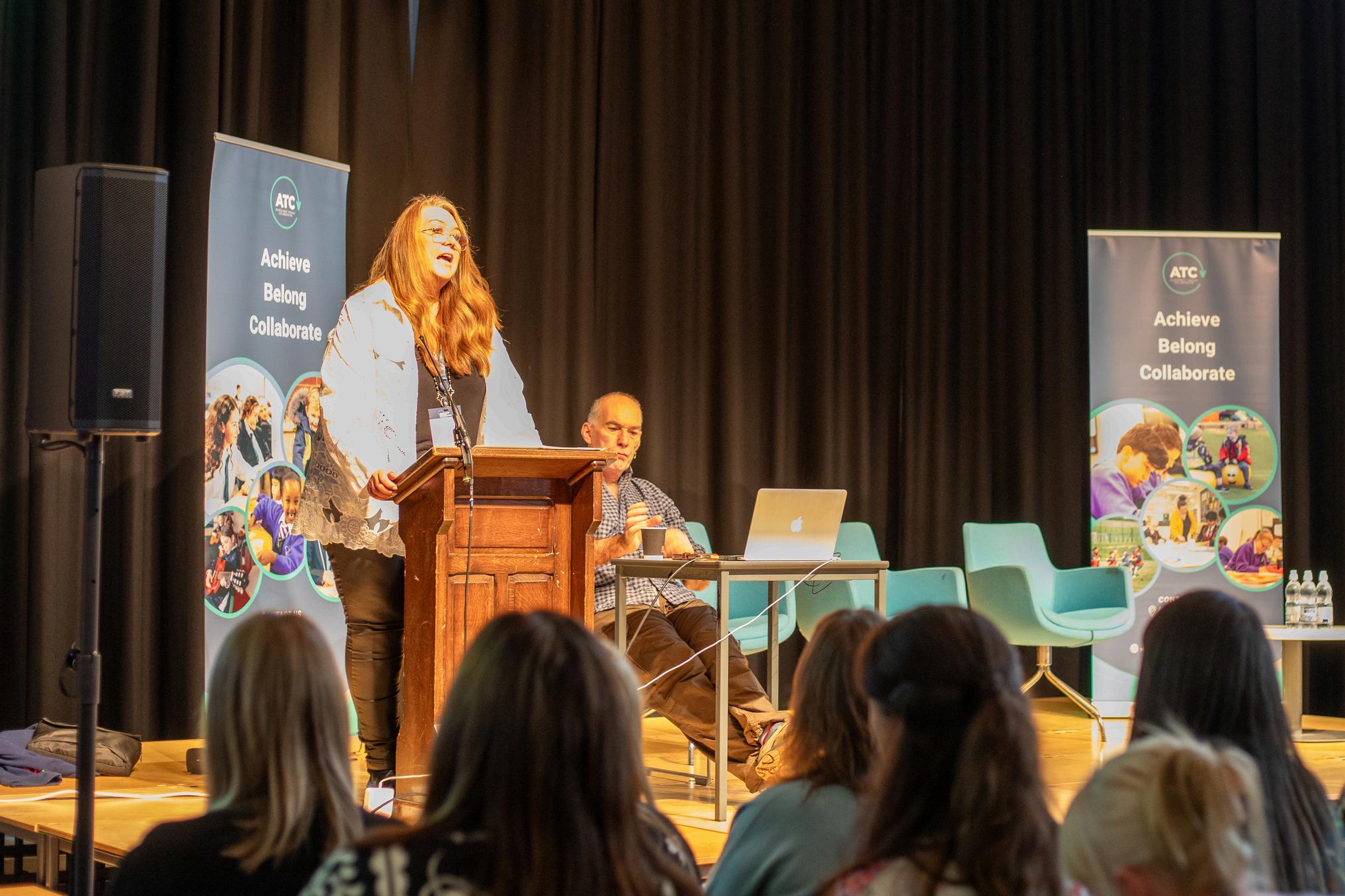
“In today’s interconnected world, the ability to network effectively is a crucial skill”
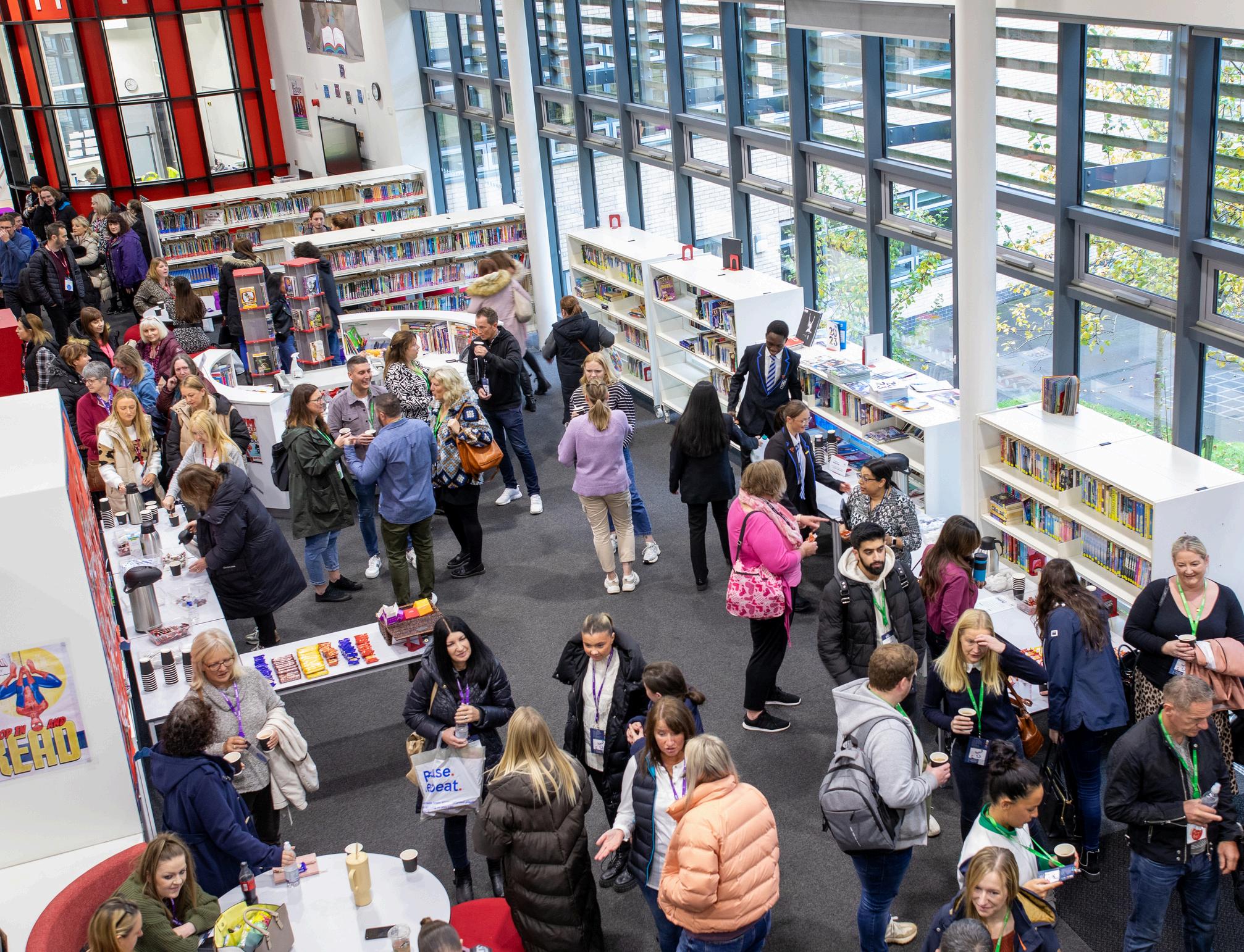
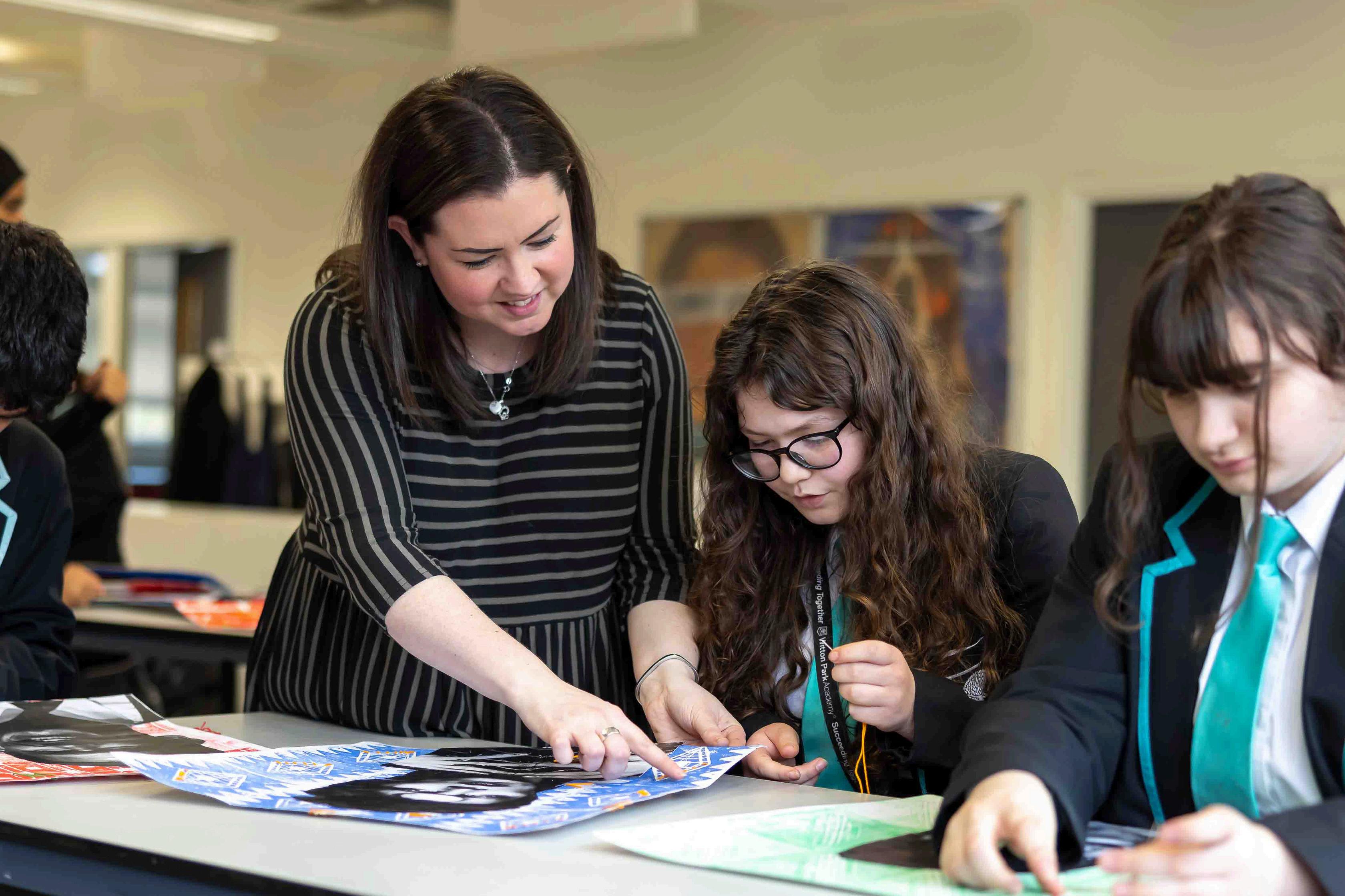
The drive for aligned and purposeful assessment across our schools moved at pace last academic year Work on developing excellence in assessment systems will continue to be a whole Trust development focus for the next two years The Assessment Leaders network was formed last year, bringing together leaders from all Trust schools to discuss in detail current data management systems and assessment methodologies. There was a strong consensus from across schools that alignment of data management and input systems would facilitate greater collaboration and insight at all levels of the organisation.
“Not everything that matters can be measured and not everything that is measured matters”
(Eisner cited in Cuban, 2014).
Over the next three years we will ensure excellence with assessment in all of our schools, helping leaders and teachers to design and implement systems and strategies for purposeful assessment - leading to improved teaching and learning and better outcomes for all
We understand that there is no perfect assessment and we also know that assessments are very often imperfect snapshots of what a student knows in any given context
We believe therefore that aggregating data across several measurements can improve the reliability of assessment judgements, we also believe that the triangulation of data across multiple sources can improve the validity or reliability of inferences made.
By collaborating with other school leaders and teachers, we are committed to further enhancing the rigour of our assessments and building confidence in knowing that data is reliable and comparable
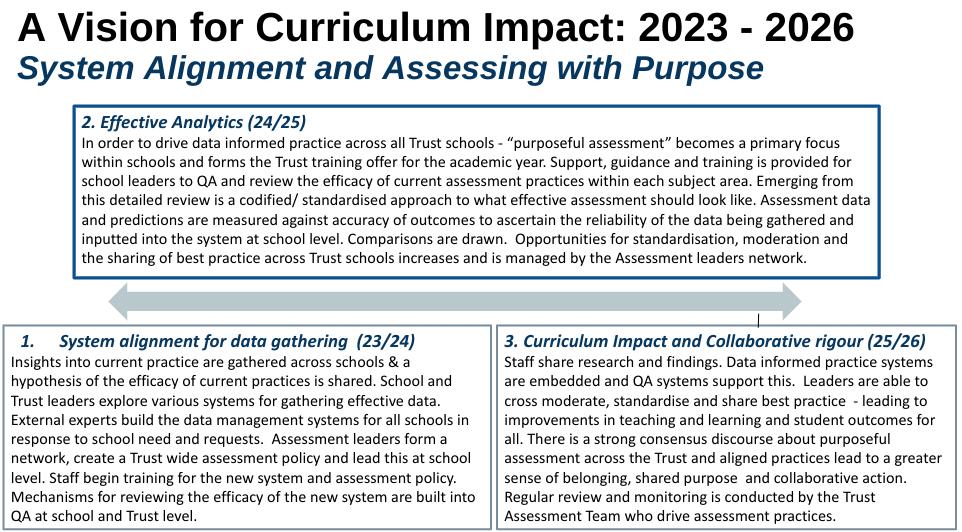
To support schools in accurately measuring the impact of their curriculum, the Trust has invested in a system called School BI
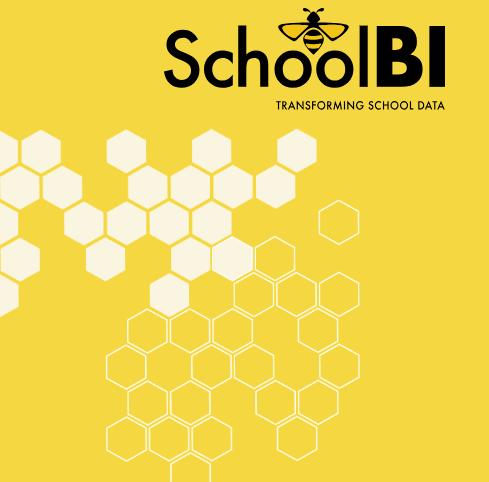
SchoolBI is a centralised, clean, and user-friendly platform that simplifies data democratisation and helps uncover data-driven insights by unifying disparate and siloed data systems across various departments into a golden record. In other wordsit takes all of your separate pieces of information and creates profiles, reports, tables, trackers in one place to make data insights more accessible and useful for staff.
As we grow as a Trust, the use of a single data analysis platform will also make it easier to support our new schools in adopting the same approaches to gathering and generating data and the subsequent insights that are so powerful in elevating teaching and learning.
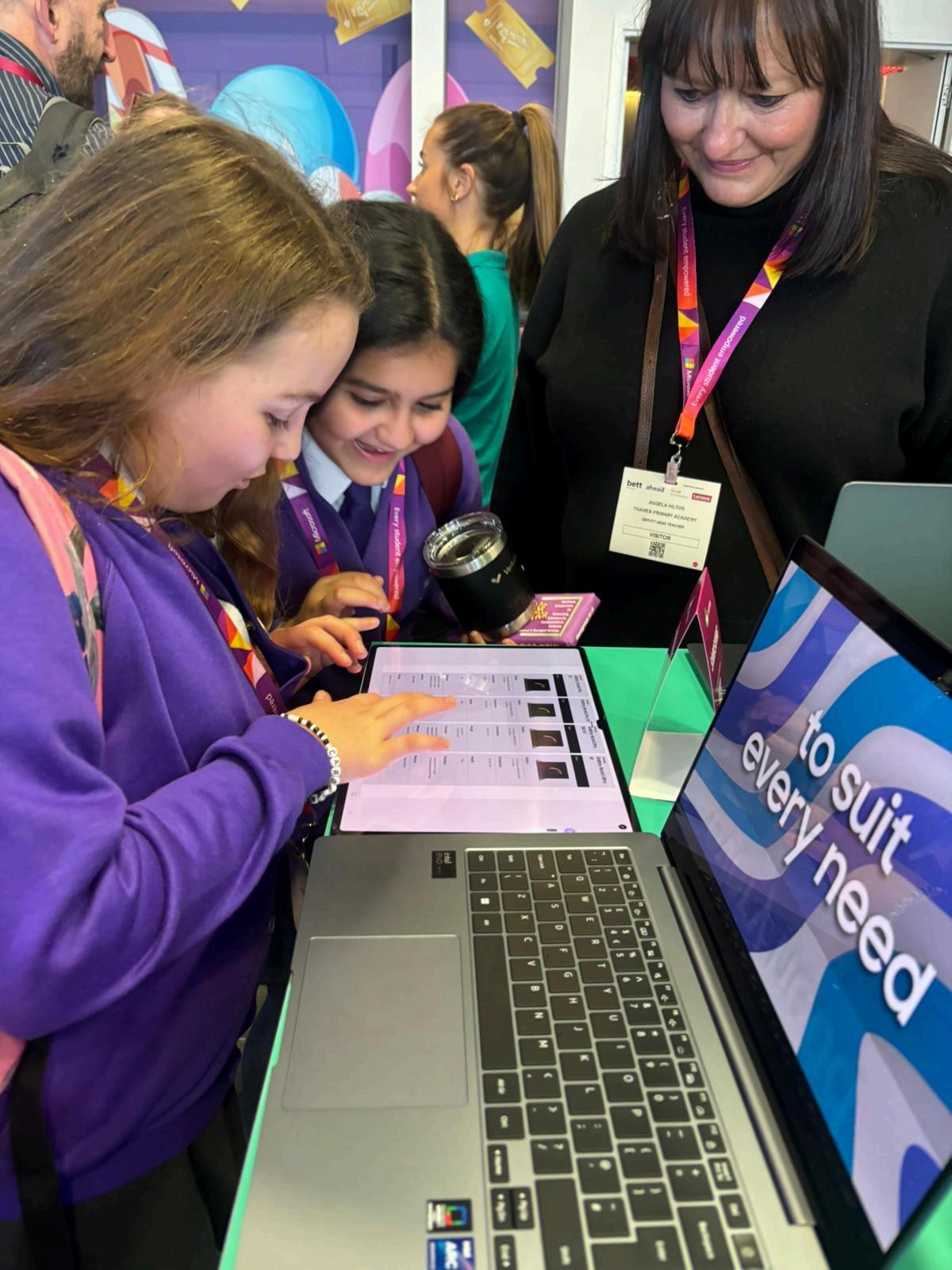
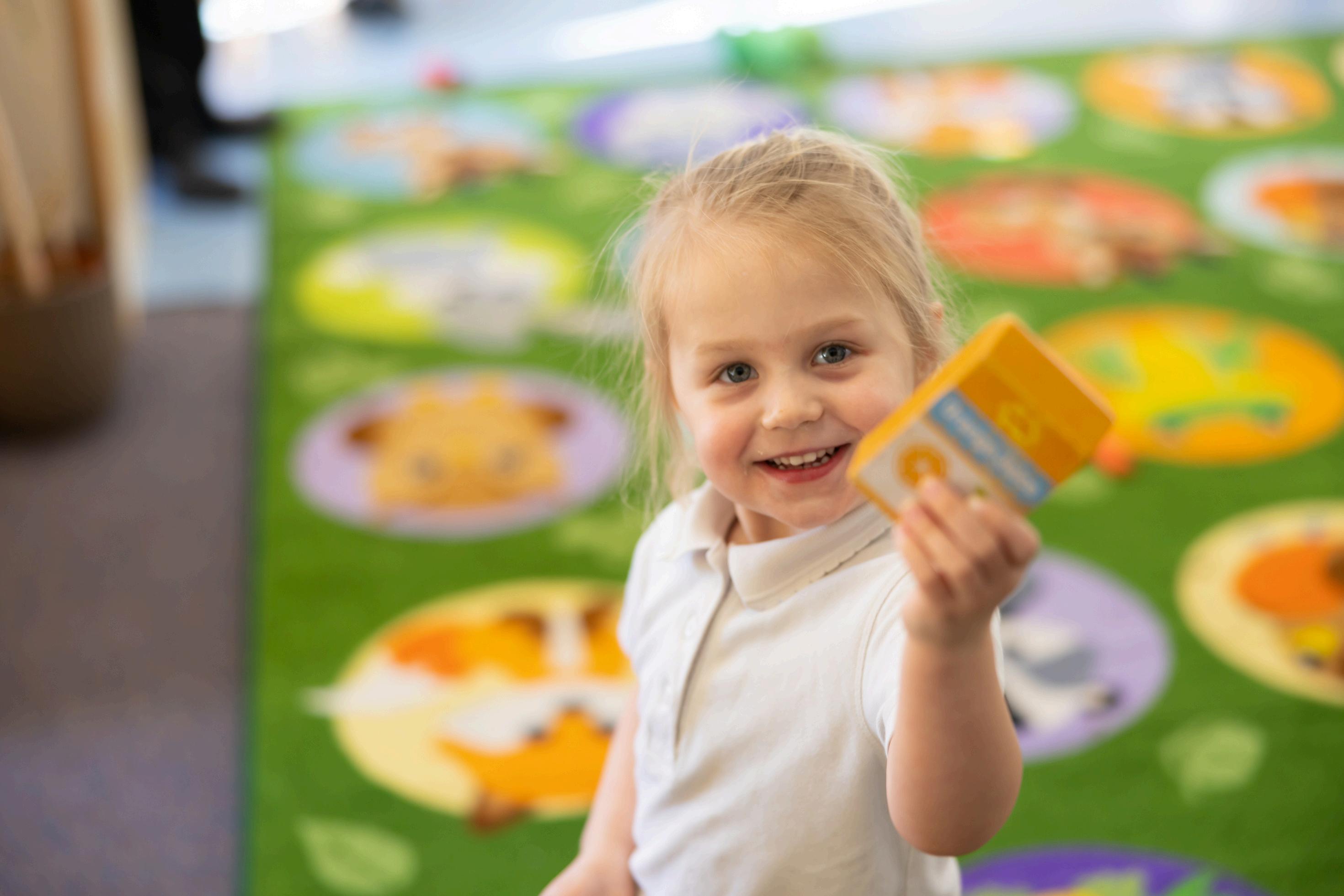
r a c y -
OThe need to develop children’s spoken language capabilities in early years and primary education is nothing new It has been part of the National Curriculum since its origins and indeed, in the Early Years and Foundation Stage (EYFS), it is rigorously prioritised and assessed through the prime area of communication and language.
Blackpool, an area with high levels of social and educational disadvantage, is just one area where professional development and training in how best to develop children’s early language has been provided for many years now, supported most recently through the PEIA funding with Voice 21
Both Roseacre Primary school and Thames Primary academy in Blackpool have been participating in Oracy projects this year. Emma Stamford, from Roseacre Primary, shares a snapshot of the things they have been doing in their school to best use the training and funding.
Our student voice survey had demonstrated to us that children did not value the role of oracy and talk and had not made the connection between talking and learning Confidence in articulating ideas, especially to a whole class, was also voiced as a barrier that many children had Armed with this information and a sense of current practices around oracy across school. the teachers involved in the project attended a two day training course hosted by Voice 21.
On our return to school, the first thing we introduced was something called ‘Talk Detectives’ Talk detectives is a task where children are asked to make observations and discuss things taking place in the classroom
We completed an activity where we used different pairs of shoes, children had to work out - through discussion - who the shoes belonged to! This low threat talk situation allowed most children to contribute their ideas, close observations allowed teachers to track those children that were very quiet, thus allowing teachers to encourage these children to contribute to the conversations taking place by providing them with verbal prompts, asking questions or directly inviting participation and turn taking
The class also completed a chat charter, a coconstructed agreement of how to engage in a meaningful discussion. This has a real impact on children as it highlighted that talk wasn’t accidental, there are rules to having a successful discussion.
Chat Charters were rolled out to all classrooms following staff training An oracy learning walk, focusing specifically on the use of the chat charter revealed a very different attitude to talk than in the initial student voice survey Children were far more positive about the value of talk and the opportunities they were given to engage in meaningful conversations in their classroom.
Best practice around talk partners and the ABC approach to questions and answers have remained in school and staff are keen to keep building on the work with Voice 21 to see how we can begin measuring impact in other ways

The EEF article Improving Literacy in KS2 states that: Giving every child the skills they need to read and write well is a central ambition of our education system The importance of literacy extends beyond its crucial role in enabling learning across the curriculum. Literacy matters in countless aspects of daily life throughout the life course and it significantly influences the opportunities that children and adults have available to them Yet despite our best efforts, too many children, particularly those from disadvantaged homes, fall behind in literacy. Disadvantaged pupils are 20% less likely than their peers to reach the expected standards in reading, writing and maths by the end of primary school, and the gap in literacy attainment grows substantially during Key Stage 2, with pupils making less progress than their peers in both reading and writing.
Closing the attainment gap for disadvantaged pupils, particularly in writing, was a key school priority for Thames Primary Academy this year The school had identified that their y6 cohort had some significant need with writing, especially with engagement and stamina, and so Sarah Taylor - Assistant Headteacher and English lead, along with the trust education team and year 6 colleagues, set about redesigning provision in year 6 to make it more engaging and exciting for pupils.
The first big change was to create writing tasks which held an authentic purpose Essentially, creating pieces that were used for something real. The first piece of work was a narrative poem written to be read at the Remembrance Service, a number of pupils were also chosen to read their poems at a local care home for the elderly These opportunities emphasised the role of the reader and the audience and raised understanding of authorial intent and impact.

Supporting socially disadvantaged pupils to excel in literacy at this stage of life is critical to closing the attainment gap between this group of pupils and their peers
Other purposeful tasks included writing a Blog for the school website, a speech about homelessness for the local radio station, working with an author to produce work and ideas for his next book. The team really made writing matter and levels of engagement and resilience for writing improved
The team then set about standardising tasks across the year group, using Canva to design a writer’s work book which contained the task, the style models, the planning frameworks, the mark scheme and practice sets relating to GPS. This new format created a definite sequence for students to follow and allowed them to demonstrate and evidence clear progress, drafting, and process developments in their books and portfolios. This workbook was supported by one of the Blackpool writing moderators as an example of excellent practice and as such, the team at Thames will be sharing this with colleagues at our other trust schools and beyond
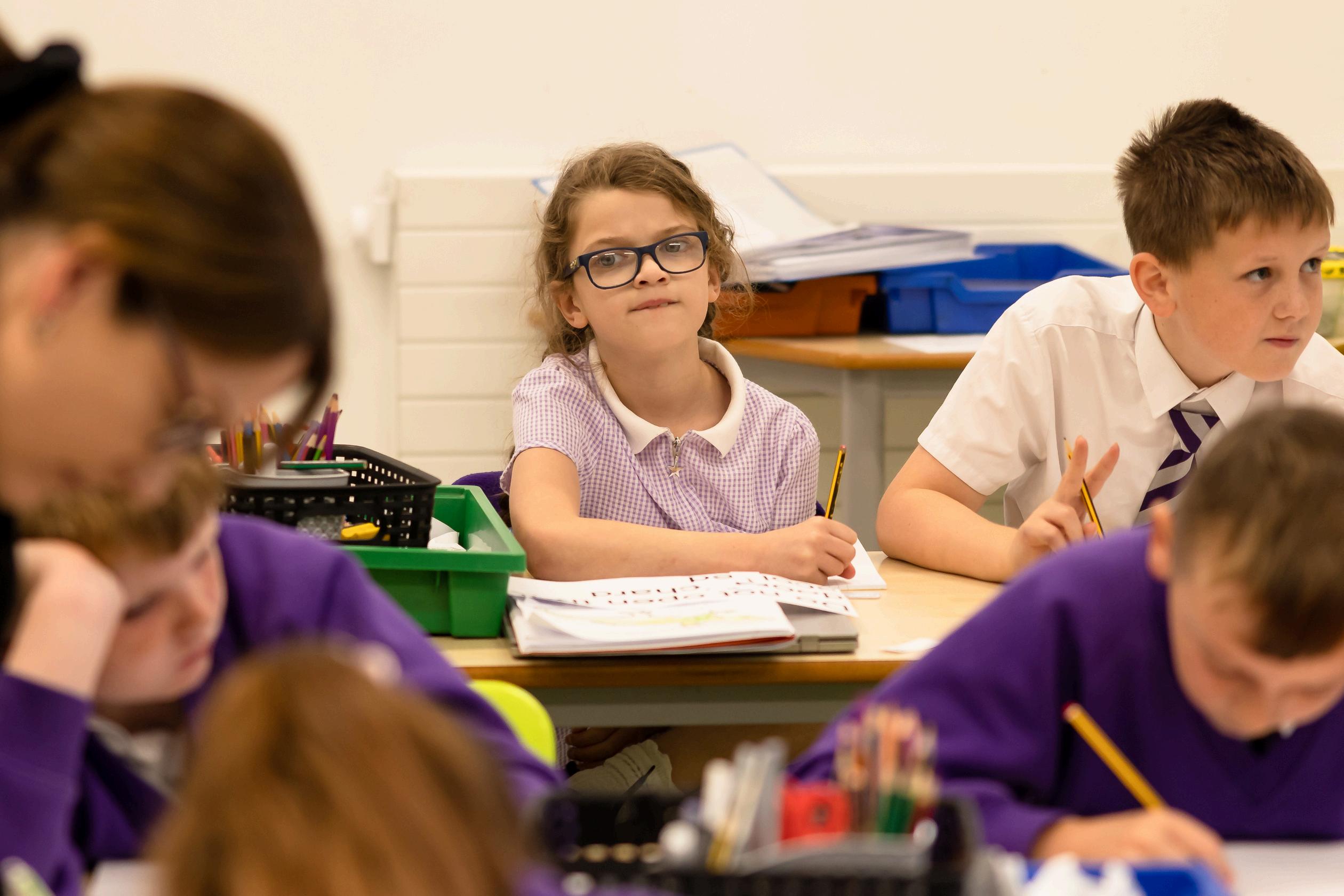
The team had also identified GPS as an area of need for the cohort and so set about integrating GPS practice sets into each of the writing tasks. This, accompanied by the investment in Grammarsuarus has had a real impact on the way staff are teaching grammar, punctuation and spelling as part of their English lessons. The team also created a 100% book - a book containing all of the GPS knowledge for KS2 that pupils would be expected to know This book was used for daily practice and has now been introduced from year 4

Finally, the team designed a method called ‘The Writer’s Sprint’ whereby at the end of the taught components of writing units, students were given the opportunity to review and evaluate the quality of their overall portfolio, rank ordering the quality of their work, cross referencing their pieces against the writer’s checklist, taking a fresh perspective on the quality of their writing and then working alongside peers and writing coaches to improve work and construct final drafts By waiting until the end of the year, pupils were in a significantly better position, both in terms of knowledge and skill, to independently review and improve their work The Writer’s Sprint was transformational, especially for GDS, with outcomes improving by 9 8% from the previous year and securing above national averages
To find out more about the project and how you might use it in your school, contact the education team at the trust.
“The Writer’s Sprint was transformational, especially for GDS, which increased by 9.8% from last year”
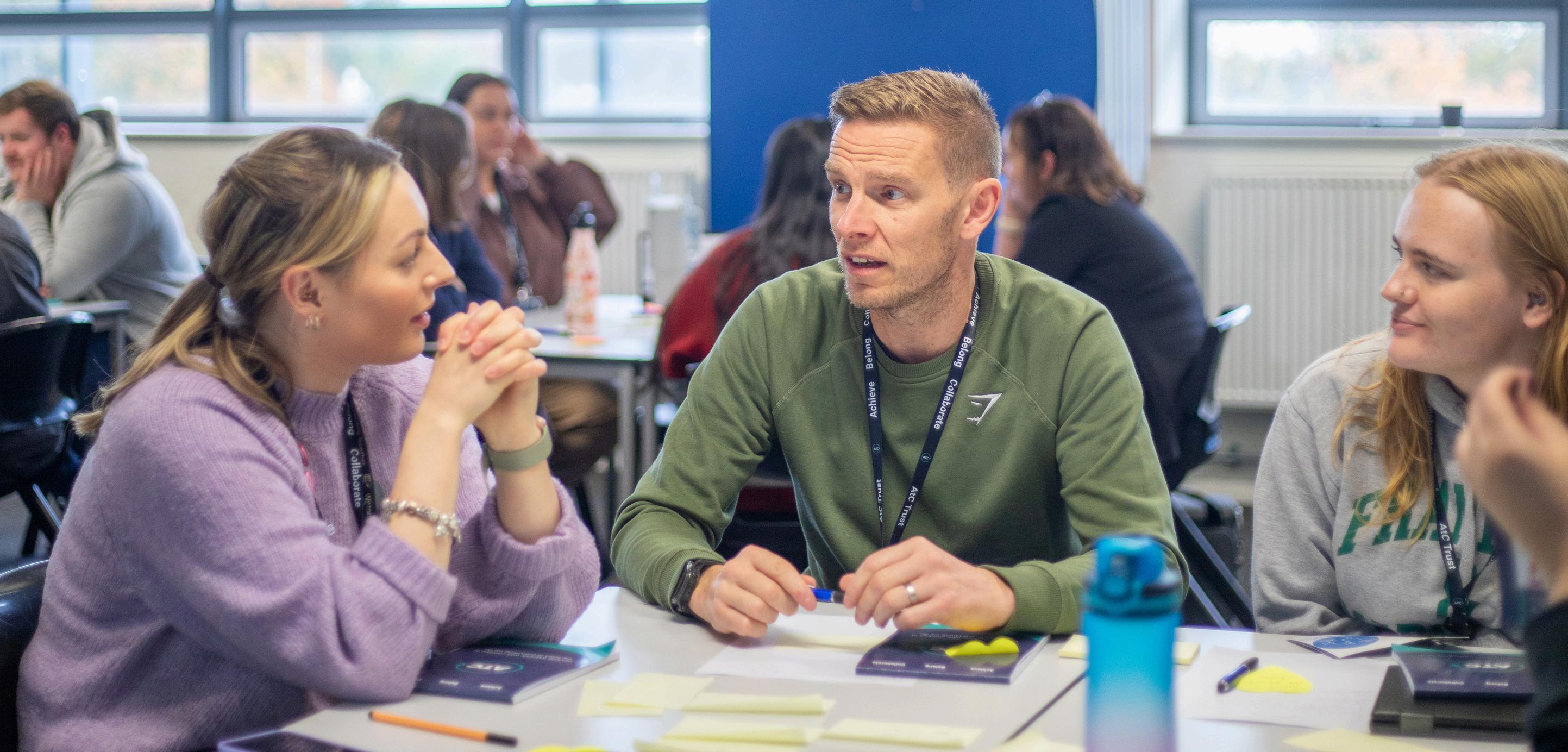
Coaching has been a part of the educational landscape for many years and is often seen, by many in the sector, as a powerful tool for transforming culture and climate within schools At its most effective, coaching is an invisible (but never accidental) part of an organisation It exists in every encounter, experience and interaction between all stakeholders and at all levels It is more than a mindset, it is a commitment to empowerment and to truly believing in the potential of others In other words - it’s exactly what school culture should be
Last year AtC trust, in collaboration with FCAT trust, offered a ‘Creating Coaches’ programme - designed and delivered to up skill colleagues in the theory and practical methodologies of coaching
We know that schools are dynamic places to work with lots of complex challenges to deal with Leaders and teachers are often expected to be “universal providers” and this can be difficult The role of a coach is to be useful to colleagues as they face these challenges, whether that’s in the classroom or in the boardroom There are lots of different types of coaching but it was felt that performance and instructional coaching would be the models introduced in the course. Whilst we had designed the course with room for 50 places, it was in fact 64 colleagues from across multiple organisations who joined us on the programme.
Staff experienced in each session the theory and practical tools for coaching and then an opportunity to coach a colleague from a different school and put their new found skills into practice What emerged from the programme was a wonderful mix of professional development, kindness and good humoured sharing
Whilst not quite all of our coaches managed to make it to the end, we were delighted that 56 of our participants secured the qualification and have acquired a substantial number of coaching hours to contribute to a professional coaching qualification in the future.
As a trust we are delighted to have so many colleagues involved in the programme and look forward to using their talents and skills as part of our growing ‘Identified Practitioners Directory’ at the trust
Schools can request the support and guidance of one of the programme’s coaches and make use of their knowledge and skills for support, school improvement or the creation of best practice models.
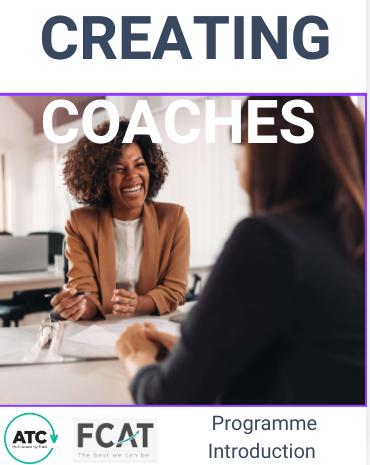
The work with FCAT was also really powerful and supported our dedication as a Trust to working to improve education for the greater good through networking and collaborating across organisations.
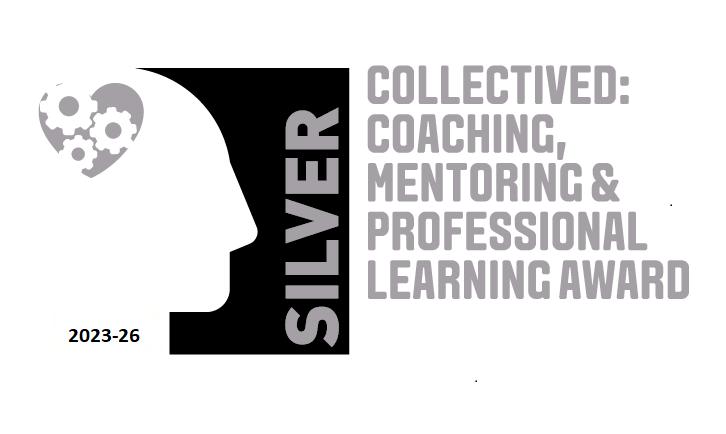
Witton Park Academy was successful in gaining a Silver CollectivED: Coaching, Mentoring and Professional Learning Award in November 2023. Initially we signed up for the CollectivED Award as a way of recognising the success and impact of the Deliberate Practice programme we introduced as CPL for all teaching staff. The outcome was considerably more impactful with the final award recognising the reflective culture that permeates many aspects of school life both in, and outside of the classroom.
The CollectivEd Award is accredited by Leeds Beckett University’s Carnegie School of Education and considers four key competencies:
Encouraging and enabling collaborative conversations which create powerful professional learning
Building capacity in the work of educators and leaders to create contexts which support inclusive career-long and professionalwide learning
Working to break down barriers to professional development through positive engagement with the education sector and allied practitioners
Increasing the opportunities for educational change through enhanced professional agency and wellbeing
WPA was appointed a coach to guide the school through the process of gathering evidence and measuring the impact on school improvement As school lead I met with our coach at three points over the year long programme.
This collaboration was supportive and offered a different perspective to coaching, mentoring and professional learning which in turn enabled us to think about measuring impact in terms of developing people and communicating with our school community alongside school outcome measures For example, our coach encouraged us to consider our communication with parents and also how we conduct meetings and training with all school employees, not just teachers.
The initial stage was to map the coaching, mentoring and professional learning provision This started with our whole school 'Curriculum and Culture Deliberate Practice' programmes and then progressed to include all professional learning, initial teacher training and early career development, collaborative conversations and wellbeing. This mapping was set against a framework provided by CollectivEd and we rated our competencies in each area In order to coordinate this I utilised the expertise of many leaders across school from both the Curriculum and Pupil support teams

BY JOANNE COLLING
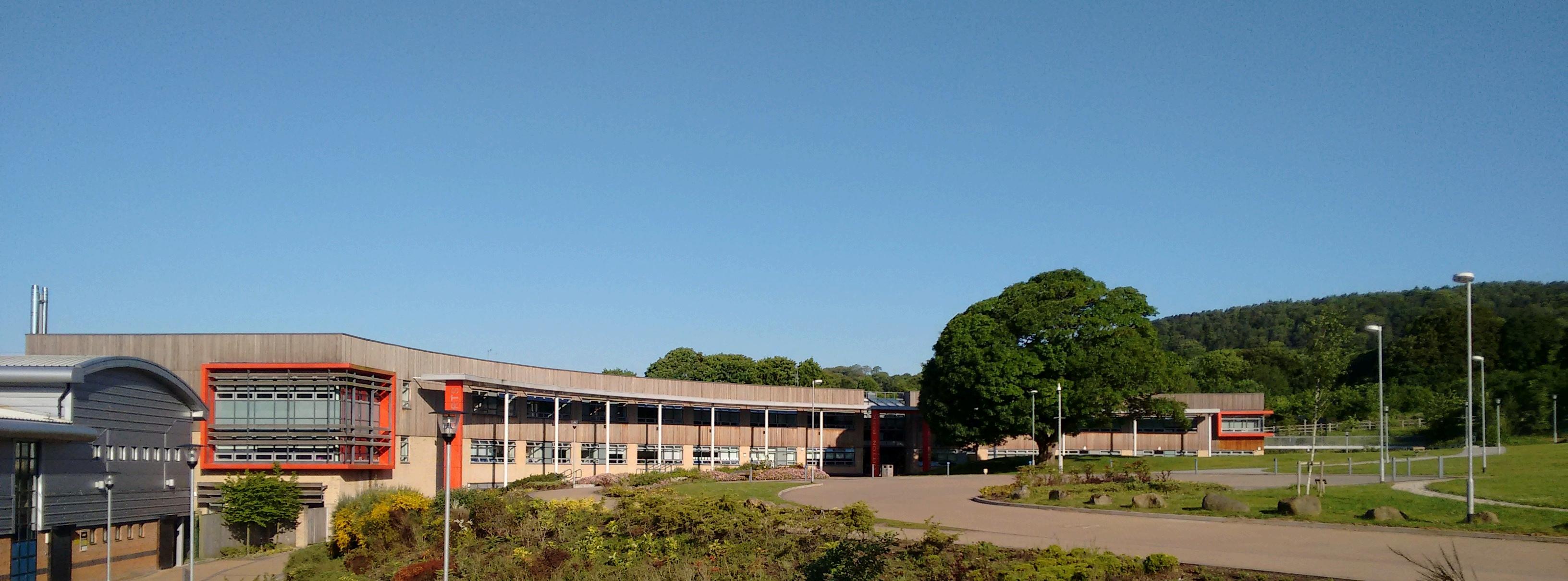
The strengths of our application for the award became clear when I started the final process of evidencing the impact Our bank of evidence was comprehensive ranging from 3A+ meeting structures to wellbeing and CPL dashboards We were able to submit evidence of impact on learning and teaching, pupil support and in order to gain a silver award, evidence of our impact beyond Witton Park Academy. The impact of a shifting culture towards deliberate practice and scripting could be seen as a ‘golden thread’ through all of the competencies For example, scripting and practising routines for the start and end of lesson routines evolved and had an impact on our wider school community; by scripting and practising conversations with students and parents we were able to see improvements in attendance and engagement in preparation for examinations.
Achieving the CollectivEd Silver Award has allowed us to recognise good practice and has taken us on a journey of evidencing and celebrating impact in all aspects of our practice at Witton Park Academy
The final report we received outlined how transformational this has been “the school has undertaken a significant journey and shown considerable evidence of how trust has been developed within the school community”
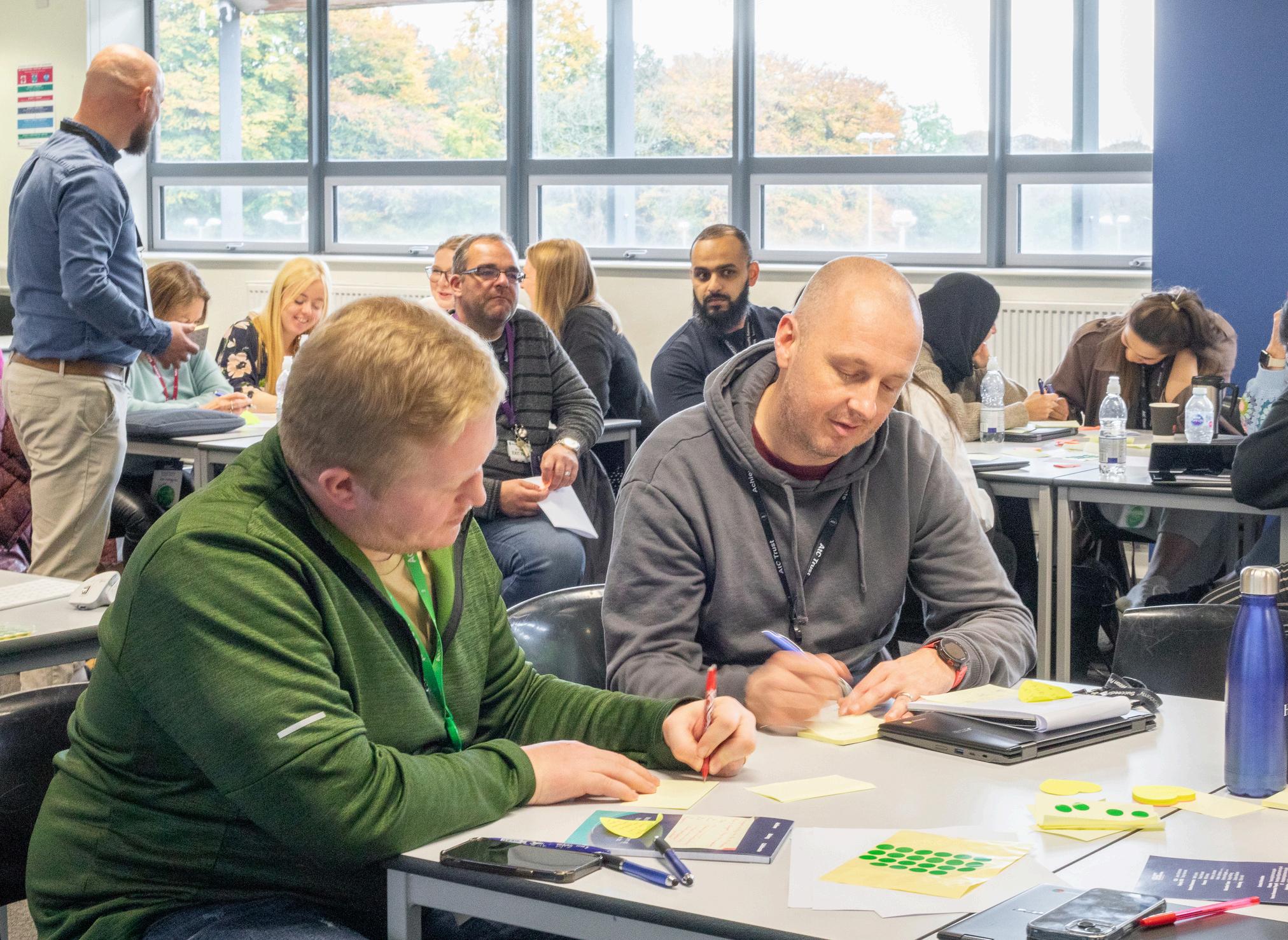
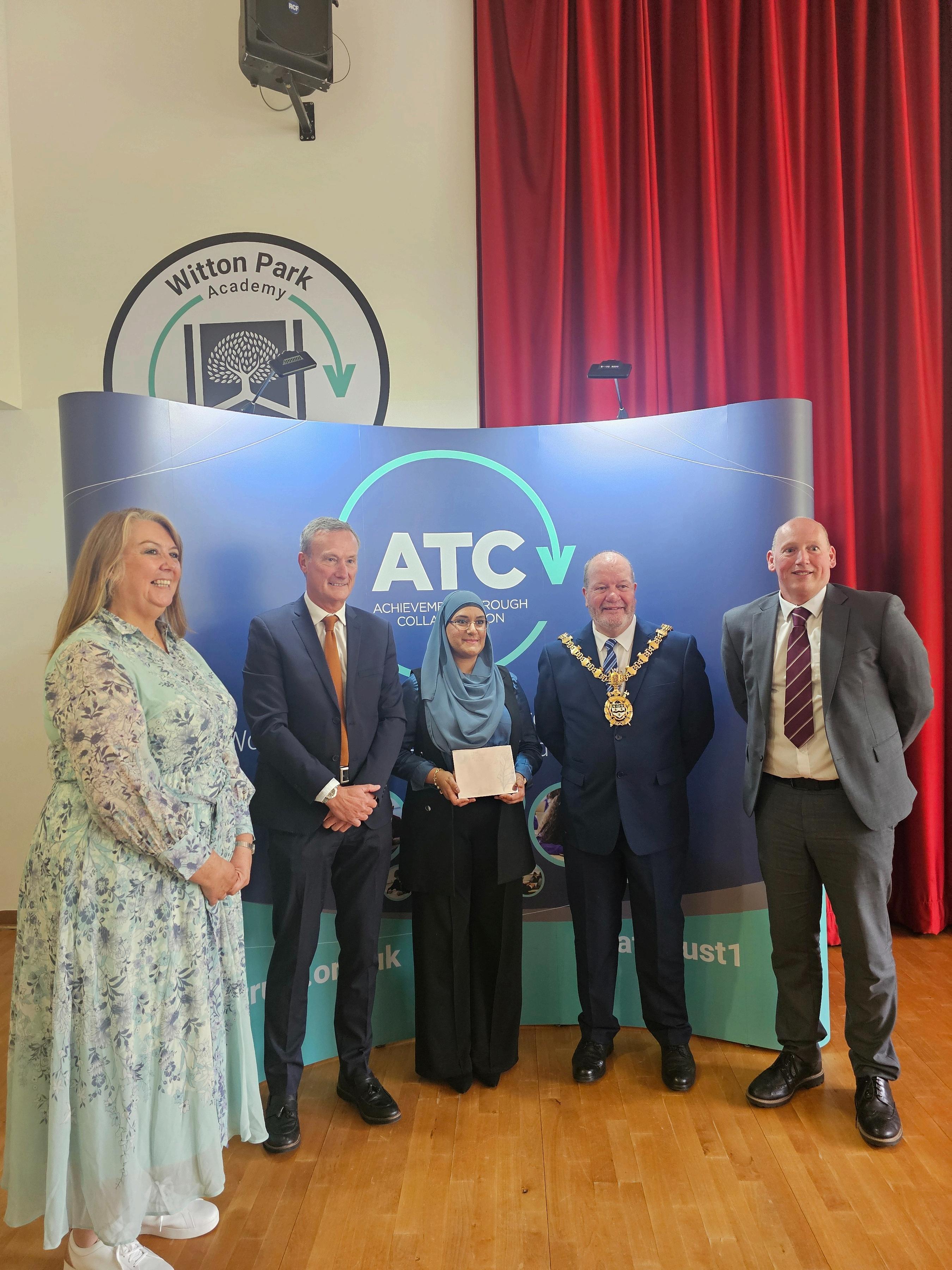
THE PEARSON NATIONAL TEACHING AWARDS:
The National Pearson Teaching Awards, often referred to as the "Teaching Oscars," are a prestigious annual event that recognises and celebrates exceptional teachers across the United Kingdom These awards highlight the invaluable contributions teachers make to the lives of their students and to the wider community.
Recognition of Excellence: The awards provide a platform to acknowledge and honour teachers who go above and beyond in their roles.
Inspiration for Others: By showcasing exemplary teachers, the awards inspire and motivate others in the education profession.
Public Appreciation: The awards help to raise public awareness of the importance of teaching and the positive impact teachers can have
The National Pearson Teaching Awards feature several categories, each recognising a different aspect of teaching excellence, from the Teacher of the year through to Digital Innovator of the year
The National Pearson Teaching Awards involve a rigorous selection process Teachers are nominated by their colleagues, students, parents, or governors A panel of education experts then assesses the nominations to determine the finalists The winners are announced at a grand ceremony attended by teachers, education leaders, and celebrities.
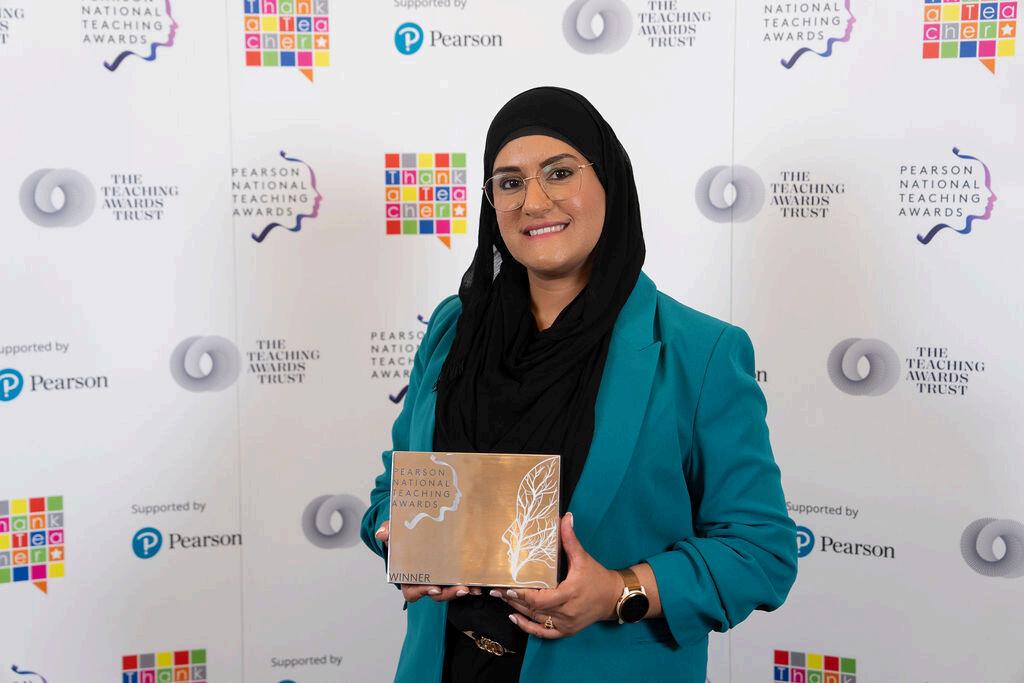
The National Pearson Teaching Awards have had a significant impact on the education profession They have raised the profile of teaching, attracted talented individuals to the profession, and inspired countless teachers to strive for excellence. By celebrating the achievements of exceptional teachers, the awards help to create a more positive and supportive culture within education
How has the National Pearson Awards Impacted AtC?
Firstly, this year Zaitoon Bukhari was nominated for the Digital Innovator of the year award. In June, Zaitoon was recognised as a Silver winner of the Award, with 4 other nominees from across the UK. Zaitoon will now attend the Gold Winners Ceremony in November to find out if she has been successful in being recognised as a Gold Winner for the National Digital Innovator of the year award
Hi - I’m Roger Farley and very proud to be the Headteacher at Roseacre Primary Academy in Blackpool My family has a strong history with the school, both my mum and wife attended Roseacre and coincidentally, as a child, I attended Thames Primary School, which is another of the Trust’s primary academies five minutes from where I sit now From Thames, I went to Palatine High School in Blackpool and then onto Blackpool Sixth Form, I am a true “sand grown-un” and I suppose you could say I hadn’t travelled far in my formative years.
At the start of my career however, I worked as an IT consultant across Europe for 16 years. In 2004, after I’d fixed the millennium bug, I re-trained as a teacher. Since then, there’s never been a dull moment and I suppose it’s where the adventure in education really started to begin I have taught and led across primary and secondary in a number of schools in Blackpool I chair Blackpool Schools Forum and I am also chair of governors at my son’s old primary school in Lancashire
I’ve worked in several local authorities and two trusts - FCAT and ATC Working in trusts and local authorities is quite different As is working in different trusts There are clearly similarities within trusts, but there can also be big differences Trusts obviously need to hold the leadership of school’s to account for standards Unlike local authorities, they are able to provide much better targeted support as they really understand the needs of the individual schools For me, this is much better than a somewhat faceless local authority
Some trusts also choose to allow their school’s to retain their own, individual “personality” I believe all schools are unique and as such, it is why many families choose the school, and also very often why colleagues choose to work there The more effective trusts, I believe, allow this autonomy and uniqueness, but also listen and standardise wherever possible Not just for control, but for efficiencies sake, to learn from each other and also to ensure the well being of colleagues by not working less, but by working smarter.
BY ROGER FARLEY ROSEACRE PRIMARY SCHOOL
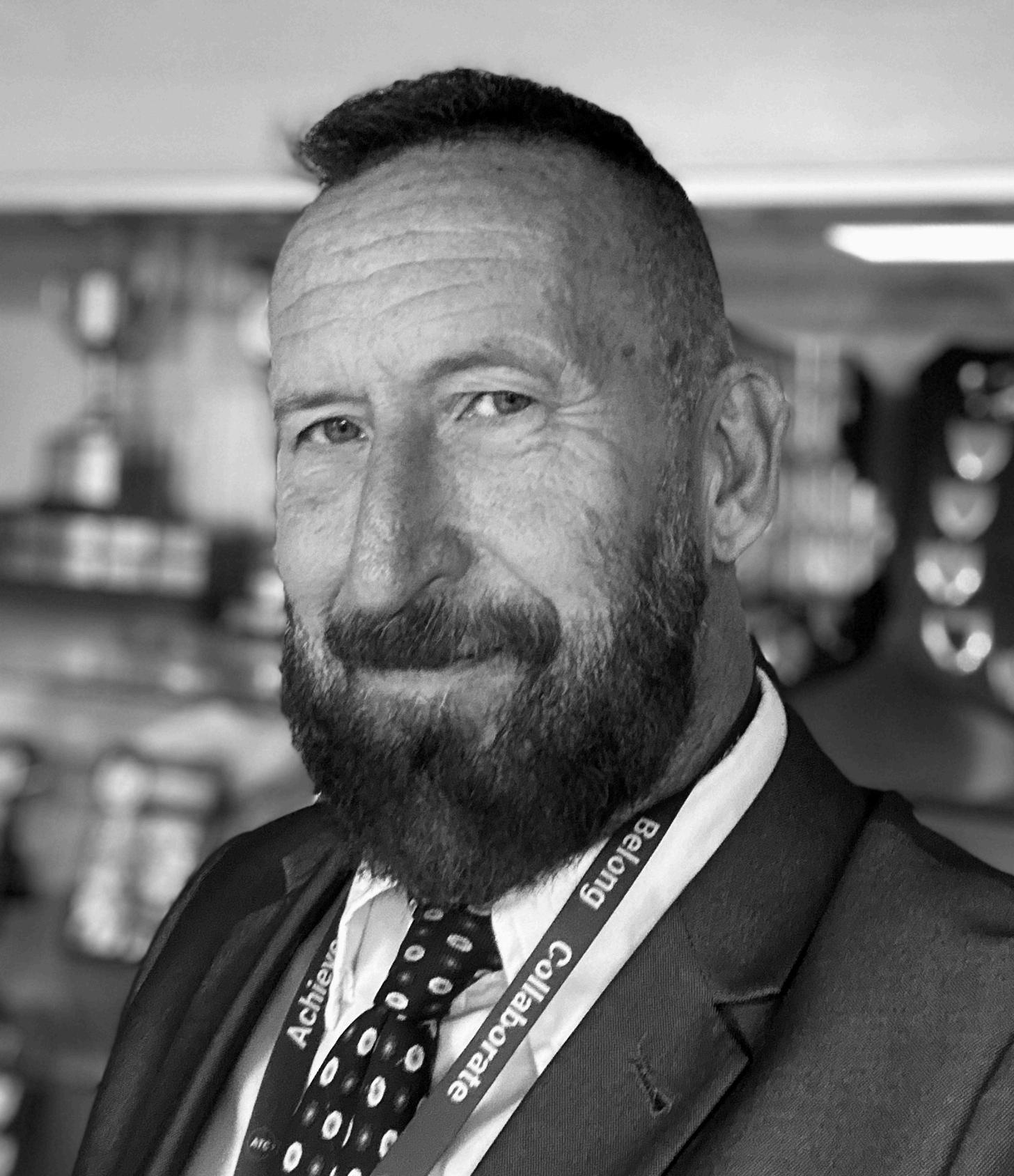
I firmly believe that, as a leader, you should be visible around school; keeping in touch with classroom practice I frequently cover lessons or assist in booster groups This way, I really get to know what the opportunities and challenges are for colleagues and children Many people say headship is a lonely job I haven’t found this Maybe I’ve just been lucky, but I have always found my senior leadership teams very supportive and challenging (in a good way!)
If there is one nugget to end on, I would say communication is key Wherever possible, we should ensure we talk and listen to each other Where we are going is often where someone else has already been We can all learn so much from each other Both in what to do and equally, in what not to do. This is the super-power of a trust that chooses to collaborate and support each other.
Have a great year and don’t forget, it’s good to talk!

NATIONAL THANK A TEACHER DAY JUNE 2024
PHOTOGRAPH: TREATS AND SWEETS AT THAMES PRIMARY ACADEMY BLACKPOOL
When the head students took to the stage a Witton Park Academy in June in front of the Local Mayor, senior executives and and other invited guests, it was a delight to hear how passionately they spoke about their teachers. Take a glimpse at their opening address, words that were echoed around all of our schools as we celebrated National Thank a Teacher day for the first time in our organisation
“Welcome to Witton Park Academy, welcome Mr Mayor and welcome to all our guests, we are delighted that you have been able to join us today in celebrating the incredible dedication and hard work of our teachers This year, we’re celebrating not only the outstanding teachers who are receiving awards, but also, we’re recognising everyone who plays a crucial role in making our school thrive.
The teachers and staff at Witton Park go above and beyond everyday to make our school a wonderful place to be We are grateful for their hard work and their relentless drive in ensuring that we get the best possible education and the best possible opportunities For those teachers who inspire us, for those teachers who motivate us, for those teachers who show that they truly care - This day is to celebrate you
From all of us here, and from the wider student body - thank you!
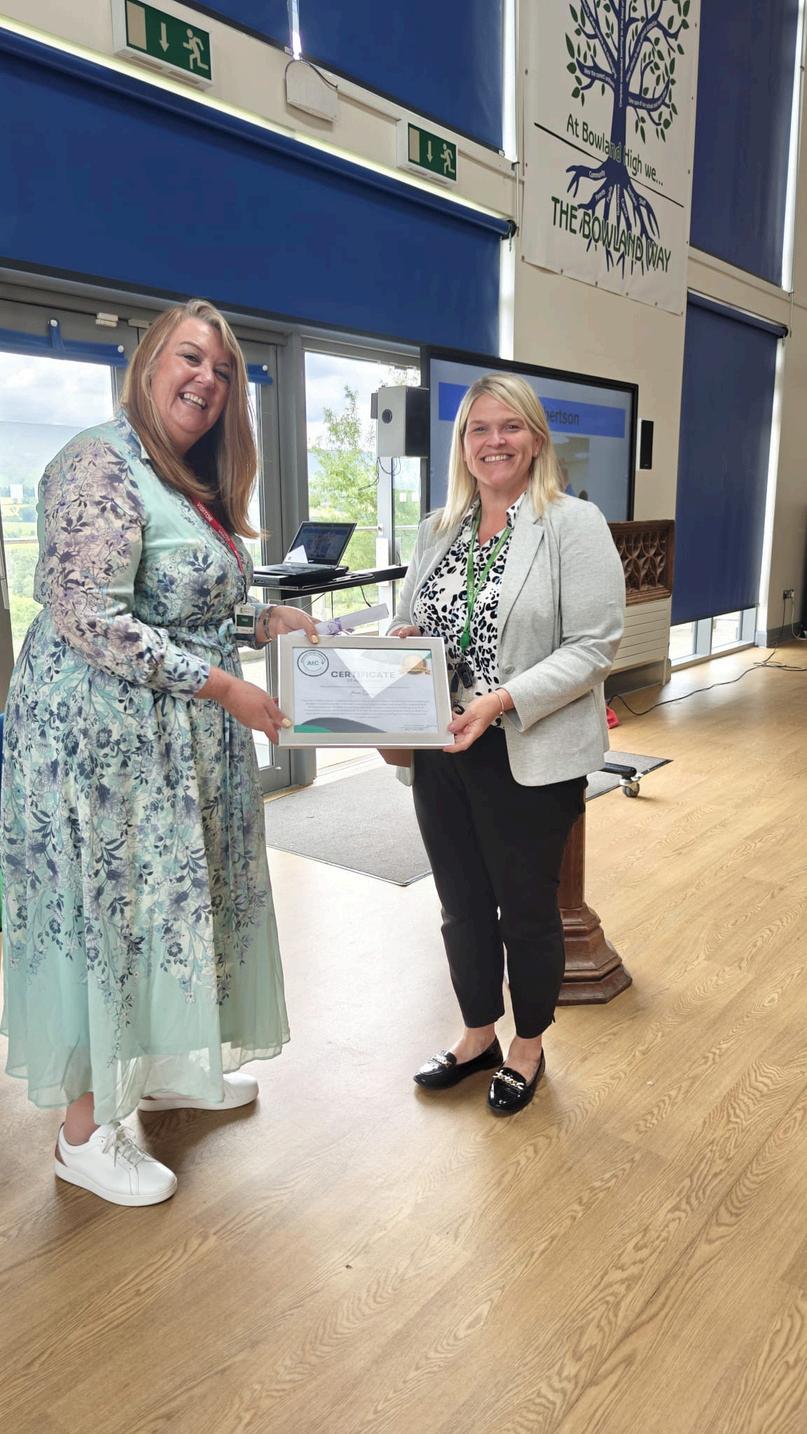
Teaching is a challenging profession, the myth of summer holidays spent relaxing and the working day finishing at 3:30pm is very quickly dispelled on your first full day as an ECT. Teaching is without question an amazing job, but it can also be a tough job. In recent years the profession has faced some real challenges and so it is even more vital that the powerful, relentless work undertaken everyday by teachers is recognised As a Trust we were keen to provide an opportunity for staff to recognise their colleagues and celebrate all they had achieved last year Jane Chambers (our CEO) sent out this message to staff to invite them to vote for colleagues they felt had really made a difference and gone above and beyond for their students, their schools or other staff
“I find it hard to believe that I've been part of AtC for nearly two years now. Before joining AtC, I'd worked in many different schools and to be honest, I thought I'd seen it all. However, since being part of the collaborative community that is the foundation of Atc, I've been blown away by what you offer our children, each other and the wider sector.
We'll be visiting each school on National Thank a Teacher day to deliver a small token of our thanks to you all from the Trust (we'll be repeating it on National thank a support staff day). But we also wanted to provide an opportunity for staff members to give a shout out to a colleague who may have this year (or in previous years) given them some additional support, inspiration or just have been there for them. So we're asking you to nominate a colleague who you'd like to have an individual thank you. It is not supposed to be a popularity contest but rather a chance for individual staff members to say thank you to a colleague (even if it is anonymous).”
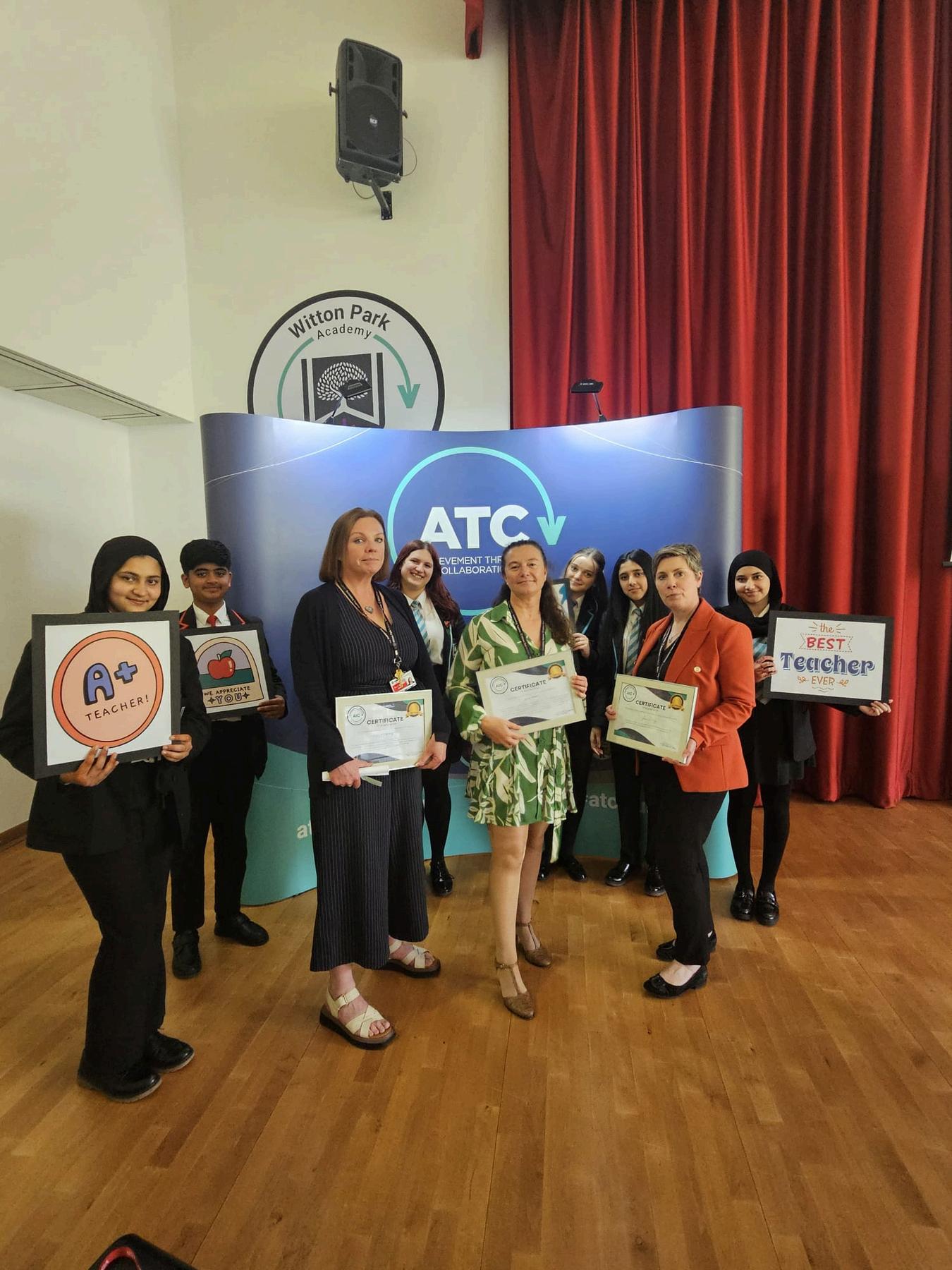
“It was a pleasure to be recognised on this day - what a wonderful atmosphere - a real celebration of our hard work and dedication.”
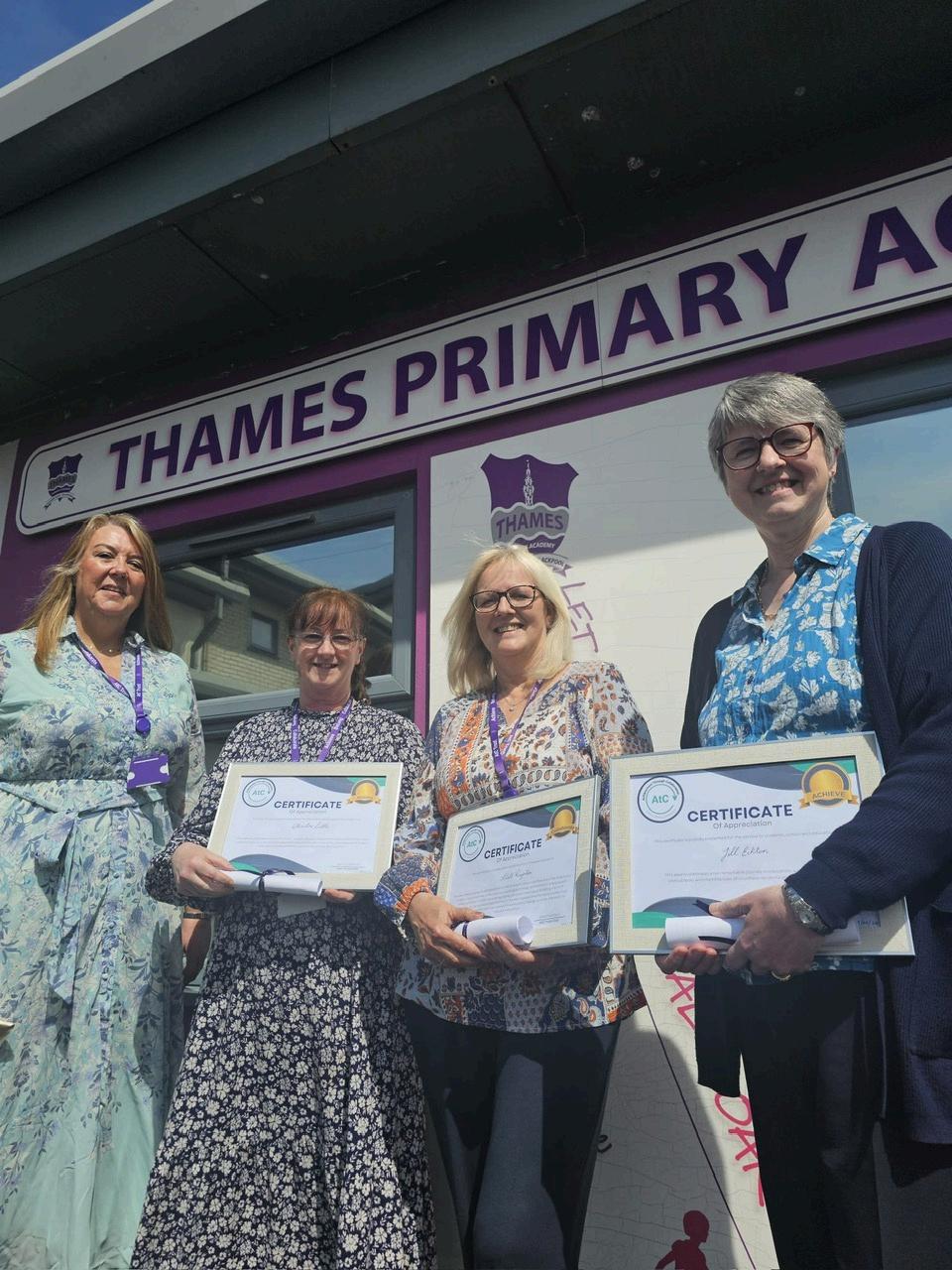
When asked to do an interview for the Trust annual publication, Megan Baker’s reaction was one of utter horror - in her usual humble and self-effacing way, she wondered what on earth she would “talk about”
Megan, however, like many staff across our Trust, has had a wonderful year From joining the Mary Myatt research team, completing the Trust led Creating Coaches qualification in collaboration with FCAT, becoming a member of the Trust Literacy Network Team and winning an award on National Thank a Teacher day, I’m sure you’ll agree that she actually has a lot to “talk about”
One of the many things we want to celebrate at ATC is our workforce We are a Trust of talented teachers and exceptional teams and it’s so important to recognise this work Each year we will take a look at the journey of one of our staff in our Teacher Spotlight, to discover what they’ve been doing, what opportunities and experiences they’ve had as part of the trust; basically taking a small, privileged glimpse into their working world
Tell us a little bit about yourself. My name is Megan Baker and I work at Roseacre Primary school in Blackpool I teach in Year 2 I am heading into my 12th year at Roseacre but have been a teacher now for 14 years (though it feels like a lot longer!) I have dreamt about being a teacher since I was 10 years old after watching my mum as a teacher Even after seeing the hard work and long hours she used to dedicate to the job, her passion for teaching and the enjoyment from such a rewarding career inspired me to also want to make a difference
What were the highlights of last year for you?
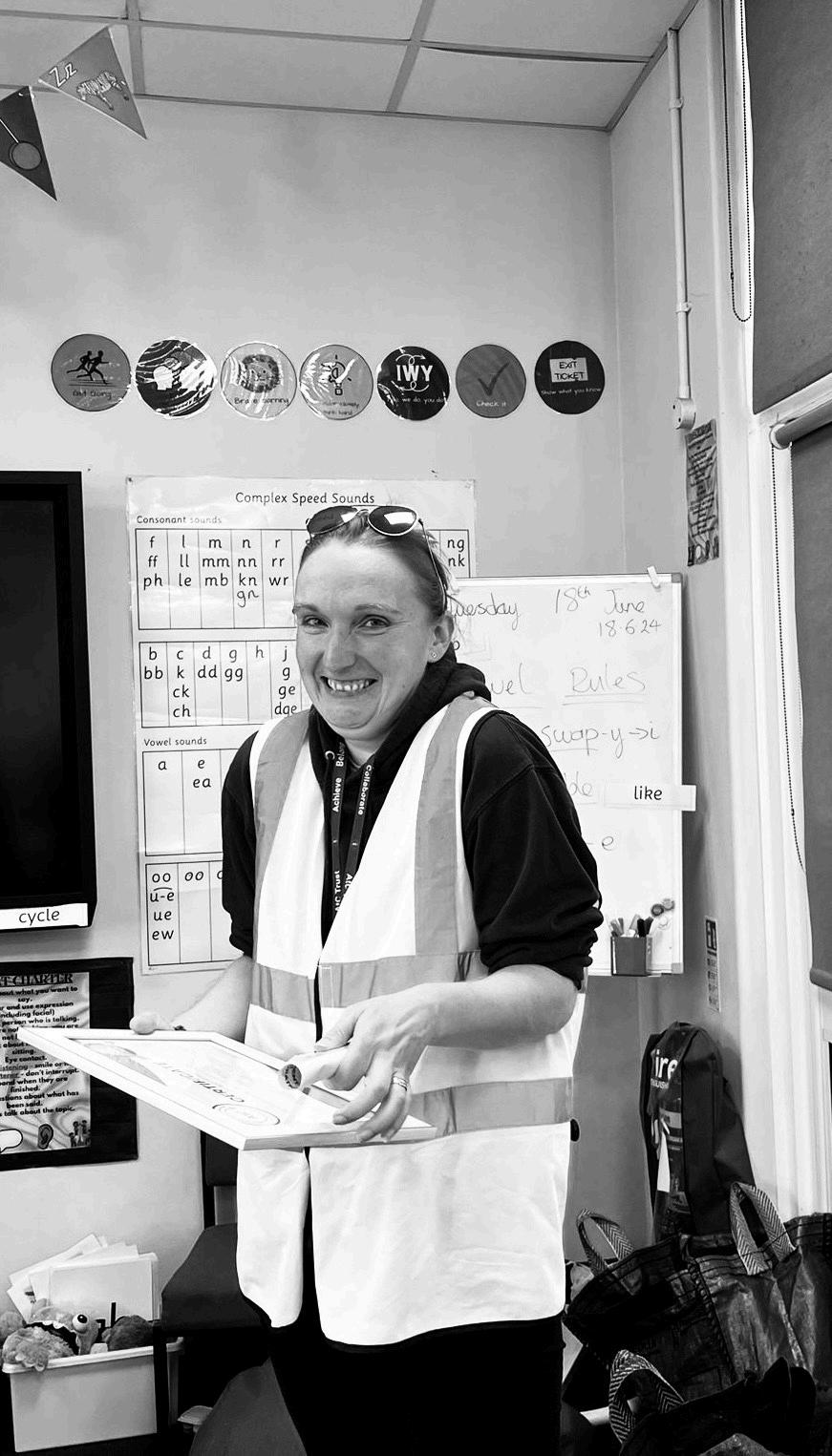
Last year was a memorable year for me and probably one of the most challenging yet rewarding years I’ve had I think last year pushed me to new heights professionally and presented me with opportunities for real growth From taking part in the Creating Coaches Programme, to joining the Literacy Network Group, it has been a year full of light bulb moments and positive changes that have impacted me personally and professionally Being nominated for the Excellent Teacher Award was not just a highlight of the year, but one of my career so far. Being recognised, not just by the Trust, but also by my colleagues means the world to me and gave me a much needed boost at the end of a long year
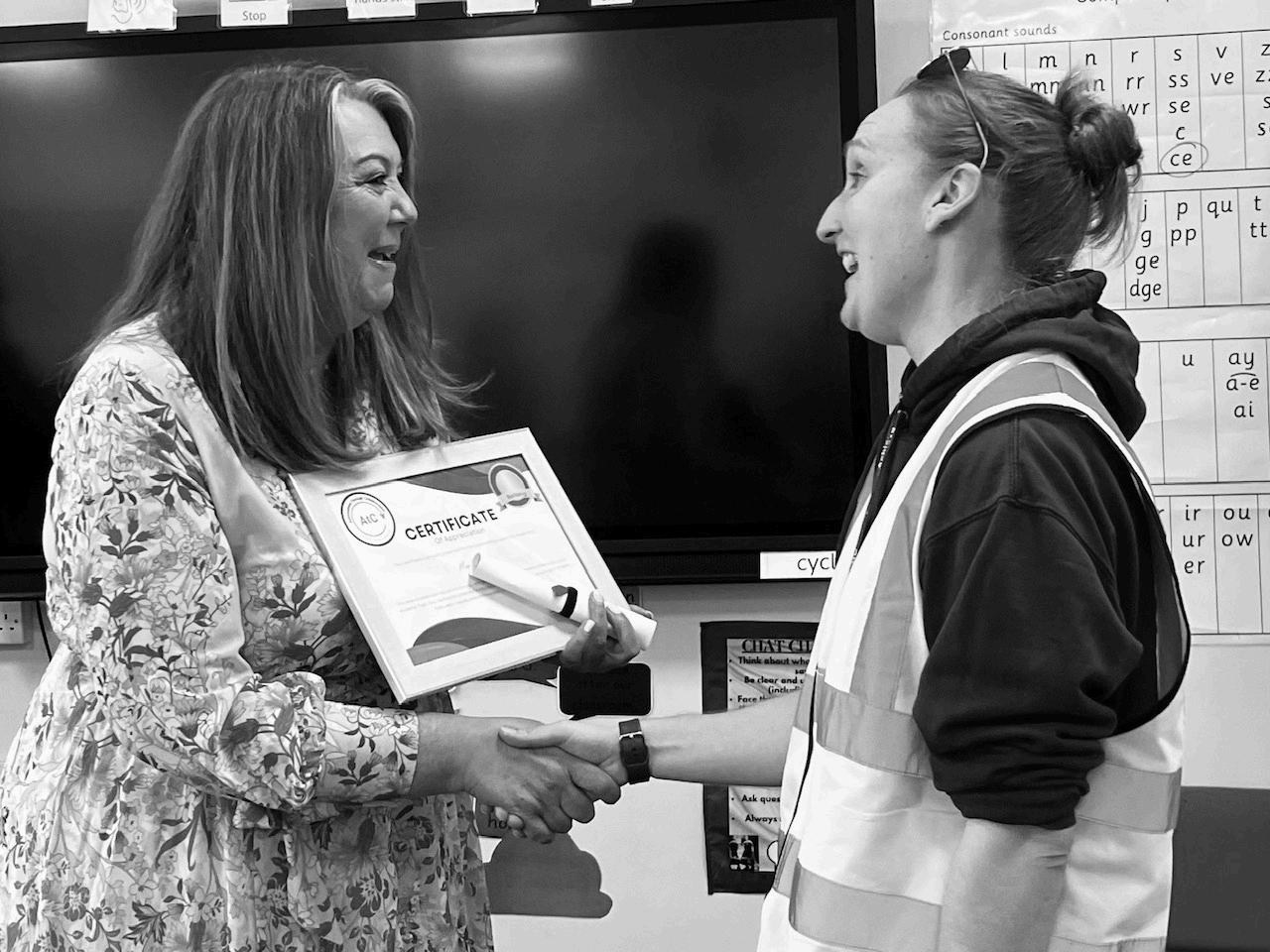
Can you identify one thing that you feel revolutionised your teaching last year? Last year, I took part in a reading research project to look at how the phonic approach to reading can be progressed in Year 2 to create fluent and engaged readers, ready for key stage 2. As a team, year 2 colleagues looked at how this can be done through creating a prosodic profile using reading theatre and a variety of different drama techniques. It was amazing to see children’s passion for reading and performance have such a substantial impact on the children’s attainment in reading as well as speaking and listening This impact was seen throughout the curriculum as well as in our end of year production - where children confidently spoke and performed in front of parents and carers It shows research matters
Can you tell me one thing that you hope to use to make a difference this year?
I am excited to continue to develop the reading approach this year and hopefully support other schools in their delivery of reading
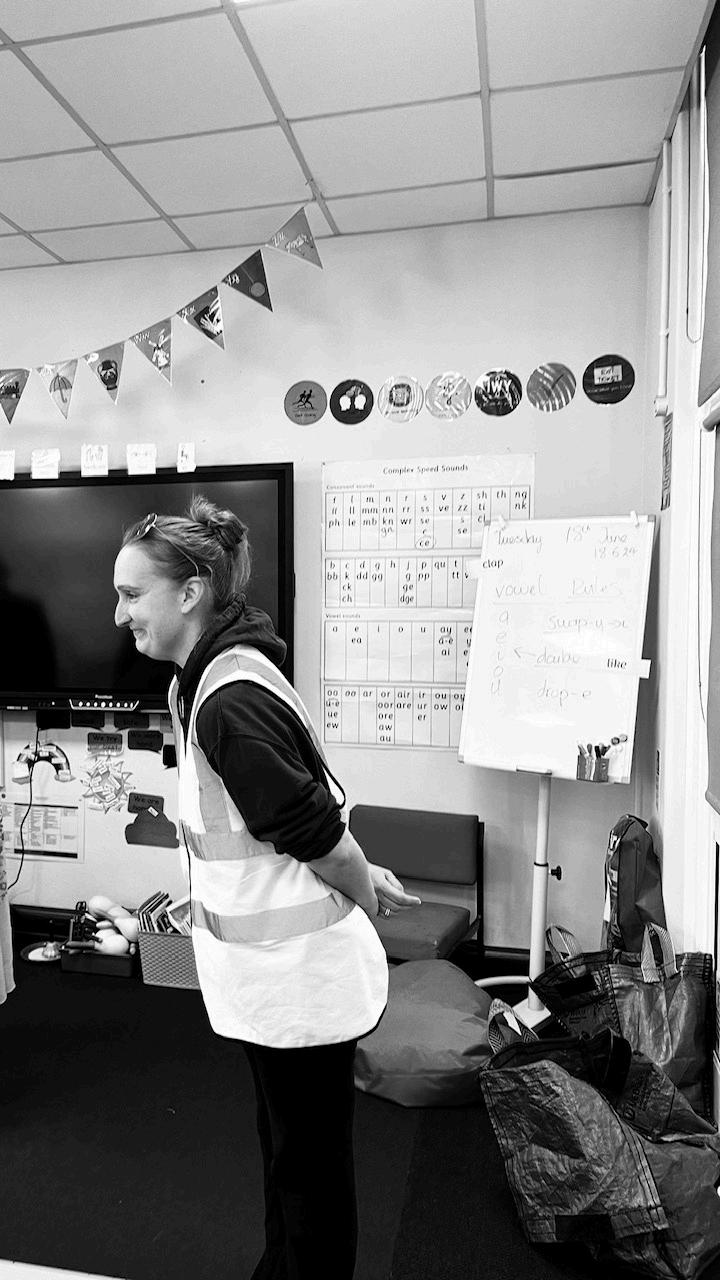
I am hopeful that what I learnt in the Creating Coaches Programme will allow me to support my colleagues, students and a student teacher that will be working with me in my class My main aim is to continue to push myself out of my comfort zone, not just to further myself in a career that I love, but also to provide more opportunities for children to have exciting experiences and memorable learning moments
“Tell me and I forget, teach me and I may remember, involve me and I learn.”
Following a year seconded to Bowland High school, Neil Hayes explains what he’s learnt and what he’ll take away from the expereince
Having worked at Witton Park for over 25 years, this past year I have enjoyed a new challenge being seconded to Bowland High School. With Anthony Keefe moving to Witton to work on behaviour strategies, I took the opportunity to “go the other way,” teaching PE and leading on formative assessment strategies at Bowland
BY ANTHONY KEEFE AND NEIL HAYES
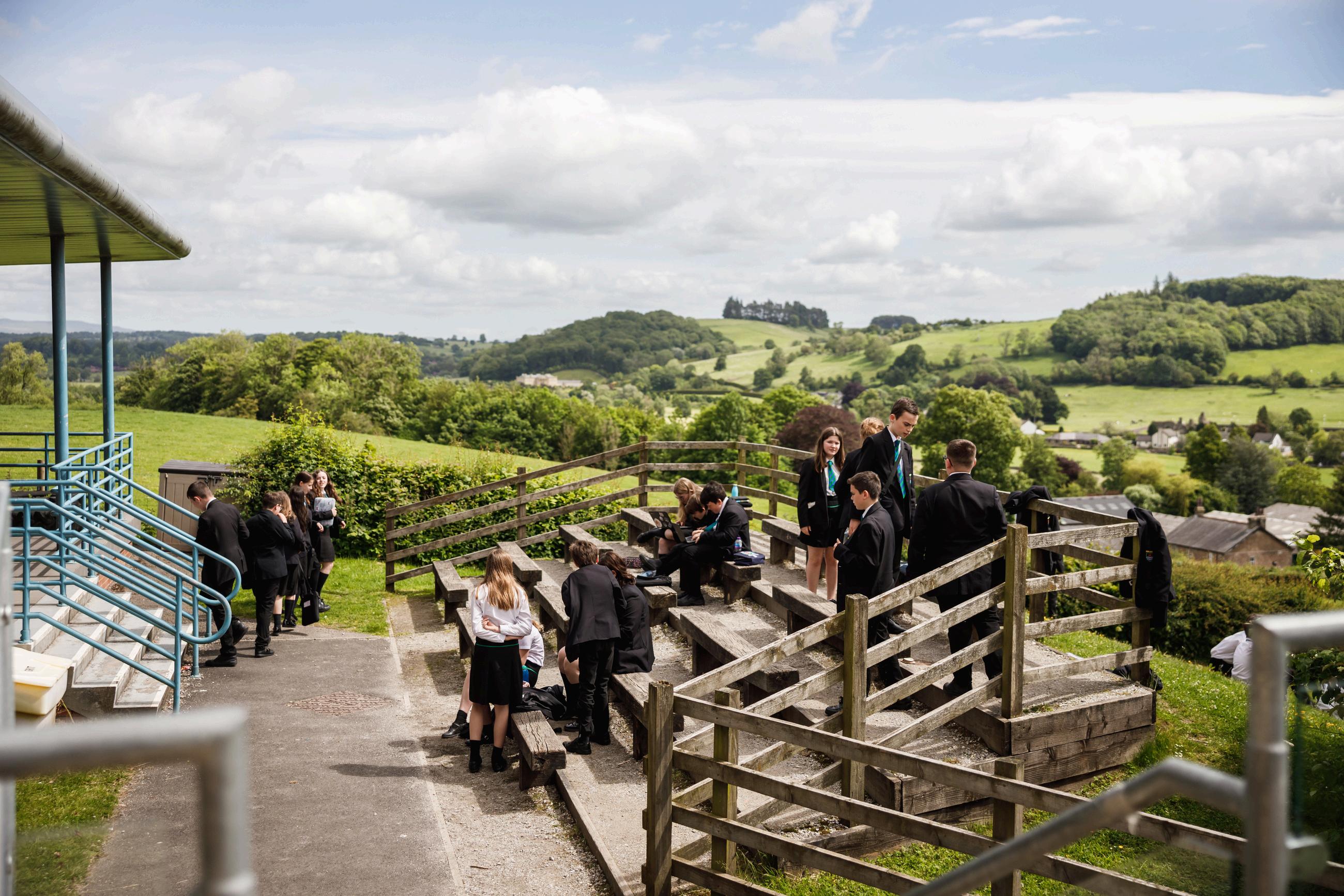
The length of time I have spent at Witton is a reflection of how much I like the school and it’s ethos. However, the opportunity to work with a different team in a very different environment was exciting Bowland were looking to develop their formative assessment strategies and having worked as part of the coaching team at Witton, I was confident I could add value and share some of the practices we had been developing ourselves.
The staff at Bowland were incredibly positive and really got behind the new ideas. Emma Robertson who was responsible for whole school assessment could not have been more supportive or easier to work with. It was a very rewarding experience for me to help staff develop aspects of their practice and it was pleasing to see the impact this was starting to have in the classroom.
It was also a valuable and insightful experience working with Danny Gleave and the PE team Students at Bowland have outstanding attitudes towards PE and extra-curricular participation is extensive Students get excellent results because of their hard work
Bowland is a smaller school than I am used to and it is a very warm and nurturing place The fact that “Students are known and valued” is part of their ethos and this really struck a chord with me. However, what I found is that there are just as many similarities between the two schools as there are differences. Both have very committed teams of people that make working in both schools a rewarding experience. Whilst I am looking forward to returning to Witton, I will very much miss some of my new friends at Bowland!
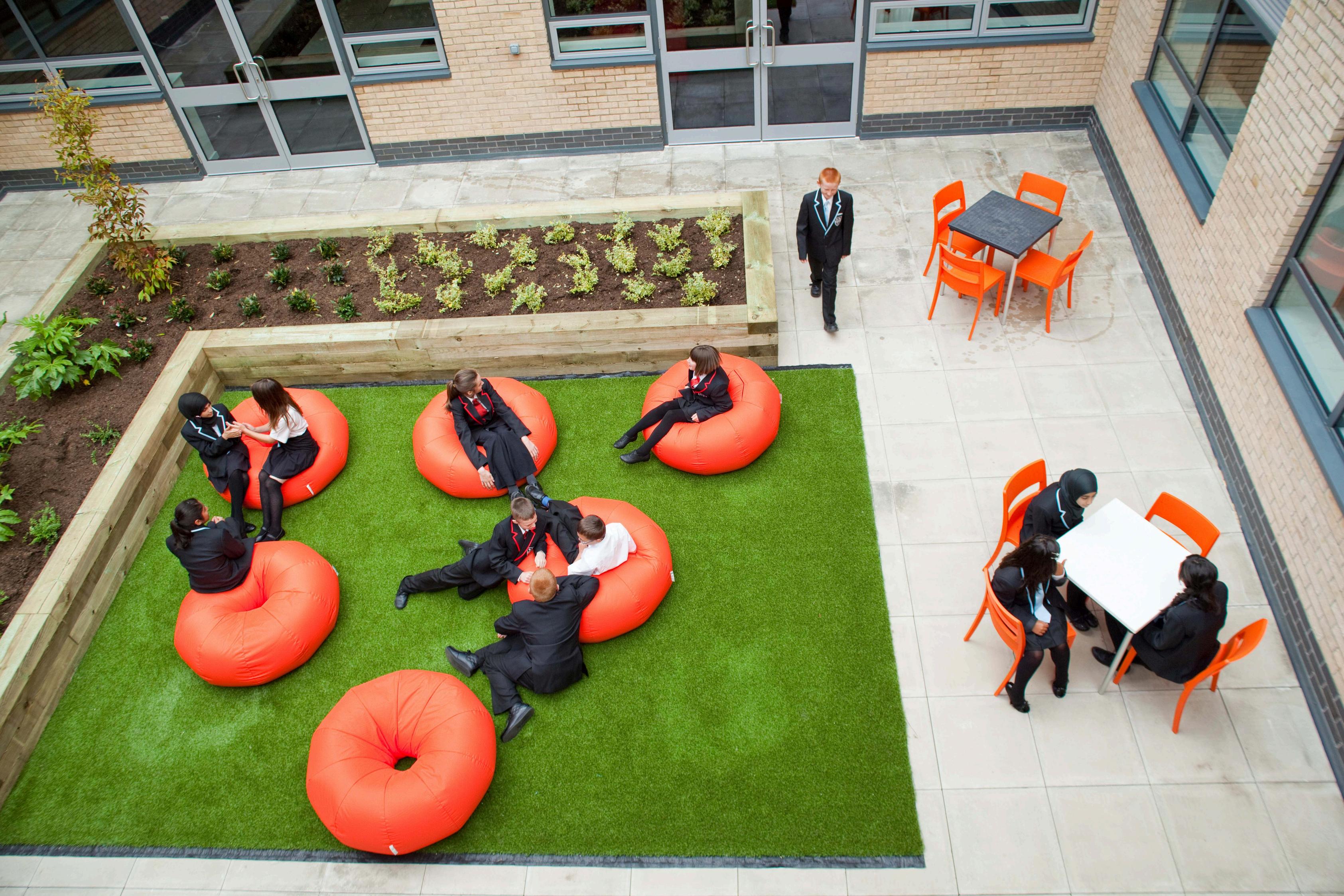
from Bowland to Witton Park September 2023-July 2024
Anthony Keefe explains his experience of the exchange: Last year I was given the opportunity to go to Witton Park from Bowland for a 12 month Secondment. I have been a member of the Senior Leadership team at Bowland for a number of years, performing many roles including leading on Teaching and Learning, Quality Assurance and more recently Behaviour I am currently nearing the completion of my National Professional Qualification for Headship so I felt having the experience of working in another school in the trust would be good for me both personally and professionally My role at Witton Park was Assistant Headteacher leading on Behaviour, Culture and Routines
Having just completed the secondment I believe that it has developed my leadership skills further, as well as shaping my attitude towards education significantly, even after being a teacher for 25 years. Witton is a very different school to Bowland in both its size and the community it serves. Working with pupils and families, often from deprived backgrounds, has certainly made it clear to me the importance of education in giving young people the opportunity to succeed in life This certainly doesn’t come without its challenges, but I really enjoyed working with the whole community at Witton Park
“I have benefited from the experience immensely; both as a teacher and a leader.”
The difference in the size of the schools was also a learning curve for me, particularly when implementing whole school initiatives. I really enjoyed getting to know not only a whole new set of pupils, but staff as well. Having taught at Bowland for a long time, getting used to new routines and procedures was a challenge at first, but having done it for a year it has been a great developmental opportunity for me professionally
I am really grateful to have been given the opportunity to work in both schools within the trust and believe that I have benefited from the experience immensely, both as a teacher and a leader
For information:
If you are interested in exploring the possibility of a secondment to another school within our Trust, be sure to raise your interest as part of your development conversations with your headteacher.
BY BETH LEWIS AND ROSIE KAUSAR
Did you know that last year at AtC Trust we had:
2 Sabbaticals
2 Secondments
7 Babies born across the Trust
7 New teachers start their teaching careers with us
8 Flexible working requests approved
13 Employees move internally to new roles within the Trust
38 Employees receive support through our Employee Assistance Programme
409 Employees move to our new payroll provider.
From these numbers it’s clear that we are a vibrant and busy organisation with lots going on (both behind the scenes and in front) to help ensure all of our colleagues feel happy and supported in their work It goes without saying that each of us is different and will require different things from HR at different points in our careers and in our lives and we strive to support everyone as an individual. There are however, a few exciting things that apply to all staff across the Trust, many of which were launched last year and which we hope to grow in the years to come
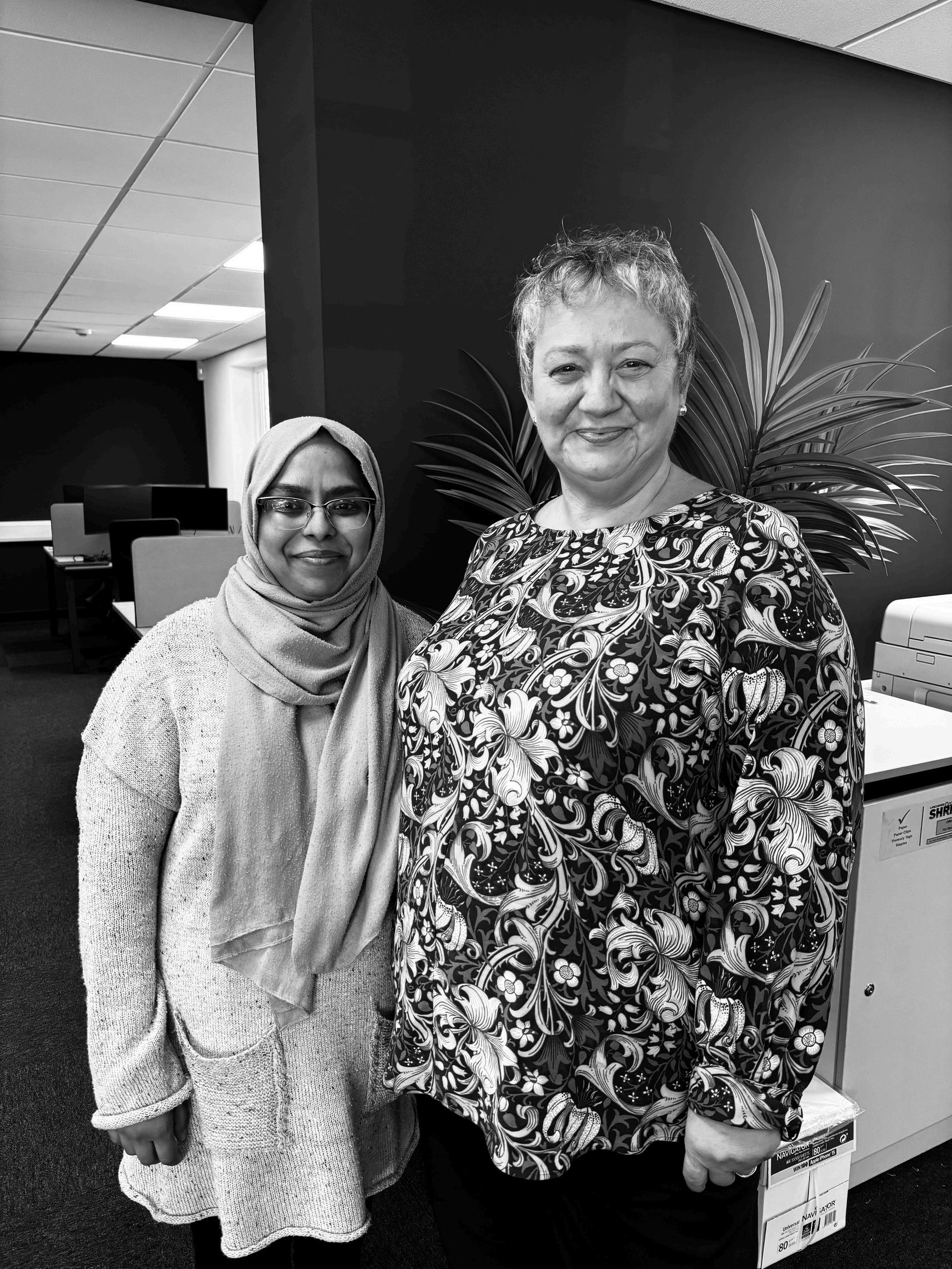
Our partnership with Health Assured for the provision of our Employee Assistance Programme continues through their Wisdom app Through the app you can access all kinds of support: Health and wellbeing advice, legal advice, financial advice, counselling, perks and discounts. If you haven’t already, then download the app from your app store, enter our organisation code (MHA228630), register and start exploring what’s on offer.
Our new HR system, SAM People, has now been softlaunched across all schools This system will provide the schools with the tools to enable successful HR management including absence management, employee information, single central record etc as the information will be available under one roof The system works in a sustainable way in which no paper needs to be involved, drafts can be created within the system and much more.
Through MySAM you can now update your personal information, access your payslips and also view and receive documents related to your employment. We have also started the roll out of requesting leave through the portal (information will come from your schools when this goes live)
Our recruitment platform, Face-ED, also offers sustainable recruitment solutions We have now been able to eliminate the paper workload and allow candidates to have a lot more control of their application through to onboarding This platform will soon also feed into the HR system (SAM People) providing completeness of the application of the candidate. This provides assurance to candidates and the schools that the information has been passed through the correct channels and each department is notified through to payroll We are committed to future proofing our systems and making things ever more sustainable
HE

With the addition of two new team members, Jess and Ziyad, we are delighted that the finance team at the Trust has expanded With our growing MAT, and new schools set to join us, it is important that we increase capacity to ensure that our schools always get a great service. The team are not just expanding in numbers though, they are also expanding their knowledge and skill set with training into payroll, adding further capacity to how the team can support staff and schools.
It might be said that it is a “tricky job” being the people who hold the purse strings to an organisation, and it is often the finance team who have to be the “good guy or the bad guy” at the end of the phone saying “yes” or “no” to the orders and requests coming through It is good to know therefore that many of the team have had experience working in schools and do understand the importance of getting things into schools, into classrooms and in front of children in a timely way. The team are also the invisible heroes of the organisation, ensuring full fidelity to financial procedures and practice - keeping schools and the Trust financially stable and financially safe
Whilst is may appear, on occasion, that finance put up a barrier, ultimately it’s to protect us The Finance department is audited four times a year, purchasing and ordering, along with many other things, are scrutinised for compliance with financially regulations.
Last year the team approved almost 500 chrome books, a thousand workbooks and textbooks, thousands of plasters and ice packs, along with the usual pens, pencils and post it notes and the more unusual “wolf in a nighty costume”! They track their seasons by open evening orders, nativity outfits and chocolate rewards They organise spring caterpillars and flower bulbs and end of year trips, sports day loud speakers and prom king and queen crowns They know the rhythms of school life and do everything in their power to anticipate what staff and schools might need to make the experiences of all of our children enriching, engaging and memorable.
So if you need them, you know where they are:
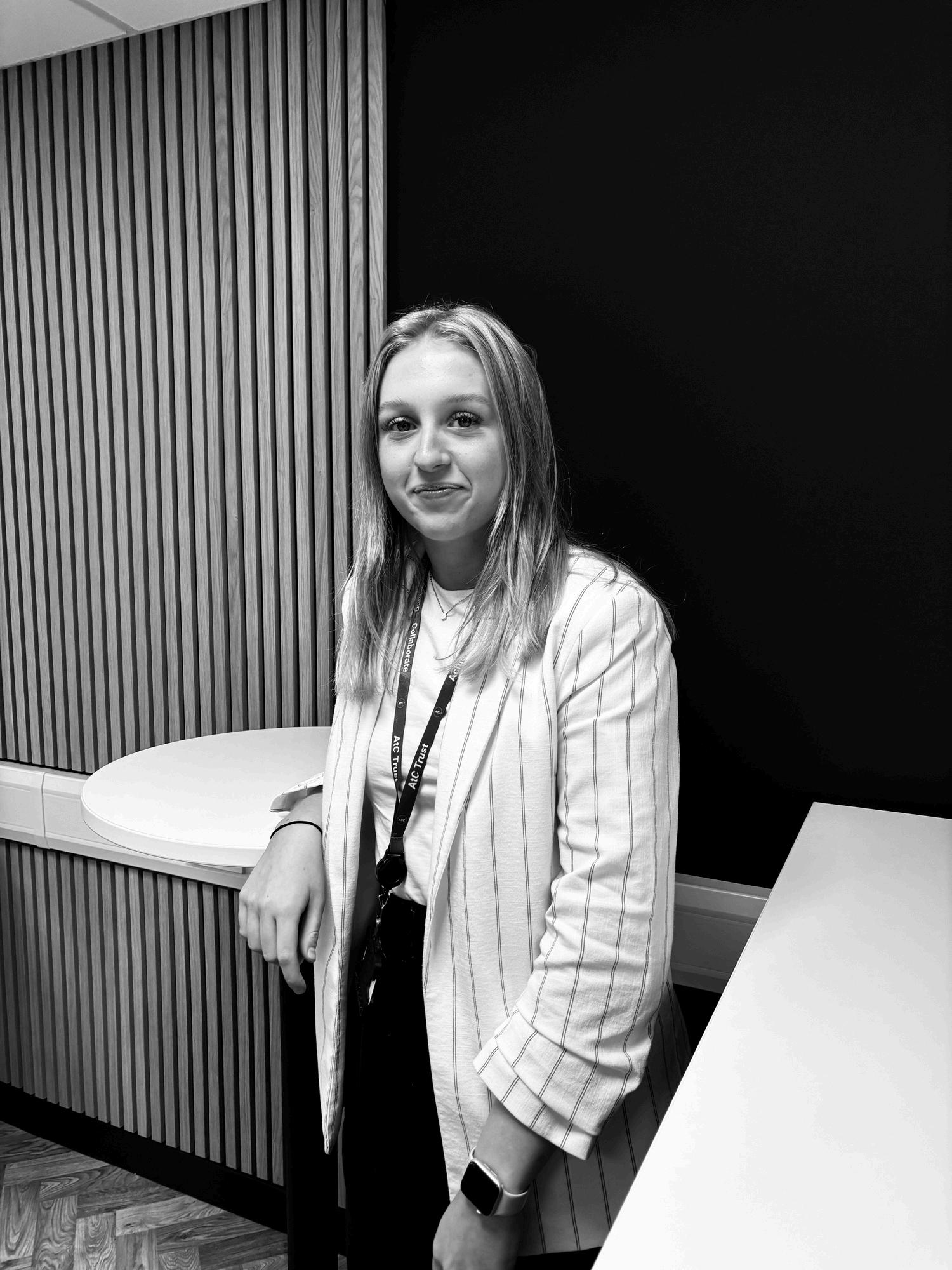
An interview with Jess Blackburn - finance apprentice at ATC Trust.
Tell us a little about your journey towards apprenticeships.
Following the completion of my GCSEs at St Christopher’s high school, I went on to attend Burnley college to study accounting I really enjoyed the academic aspects of the course but when it came to my next steps, I knew I wanted to embrace a more practical and “real” element to my studies I also knew that I actually wanted to start workingso the apprenticeship seemed like the best option for me. Whilst I enjoy the theoretical aspect of finance, the learning is much more powerful for me if I’m dealing with real things.
As part of the apprenticeship I know that I will be able to complete my AAT levels and this should open up a whole host of opportunities and pathways that I’ll be able to pursue in my furture career.
What’s it like working at ATC?
When I signed up to Training 2000, my apprenticeship provider, I didn’t know what type of organisation I would end up in so when the opportunity, and subsequent interview came up at ATC Trust, I was interested at the prospect of working in the education sector (an area I had not even considered before hand).
My interview at the Trust was great and I was offered the position as the finance apprentice. The team at the Trust are really nice and provide the support and guidance I need to secure my qualifications The work is much busier than I expected, and it’s interesting to follow the cycle of an academic year with the purchasing and ordering of goods and equipment reminding me of events from my own school experiences such as open evenings and Christmas shows
AtC Trust is committed to utilising the apprenticeship levy and creating career based opportunities. Apprentices bring fresh perspectives, enthusiasm, and a willingness to learn, contributing to improved productivity, efficiency, and overall organisational performance. By investing in apprentices, our Trust can foster a culture of innovation and adaptability, making us more nimble and responsive to sector trends. It is our intention to expand the apprenticeship offer by supporting our schools to offer opportunities to current staff wanting to explore additional qualifications

BY WILL AMES: CHIEF FINANCE OFFICER

Financial management and support is one of the main benefits of being a member of a Trust. There are numerous things the C.F.O Will Ames and his team do to ensure the financial safety and stability of ATC Trust schools. Last year, a number of large projects took place to support schools in providing the best possible education for our pupils.
School Resource Management Advisor (SRMA)
Between JAN '24 to MAR’24, the Trust engaged in a School Resource Management Advisor (SRMA) visit to support the amendment to Bowland High School Supplementary Funding Agreement to acknowledge the schools PAN increase.
The aim of the visit was to provide peer-to-peer support & advice in using the revenue & capital resources to deliver the best possible education outcomes for pupils
The Trust received positive feedback regarding its strategic financial planning and provided praise to the Finance team regarding the management of the Trusts finances. In particular the report was very complimentary regarding the Trusts implementation and monitoring of Integrated Curriculum Financial Planning (ICFP).
Working with our partner Lea Hough Chartered Surveyors, we applied for 6 Capital bids via the Condition Improvement Fund 24/25 for improvements to the building conditions at Bowland / Roseacre / Thames The trust was successful in 5 out of the 6 bids resulting in the approval of £850k of Capital Funding All of the works have now started and will be complete by October 24 Half Term
One of the main aspects of Multi-academy Trusts is the pillar of Governance and Leadership. It is the responsibility of the board and executive leadership team to anchor the trust’s strategy in the needs of its schools, the communities they serve and the wider educational system in line with its charitable objects
The Accounting Officer, board and leadership team is also required to create a culture of ethical leadership, including the Seven Principles of Public Life.
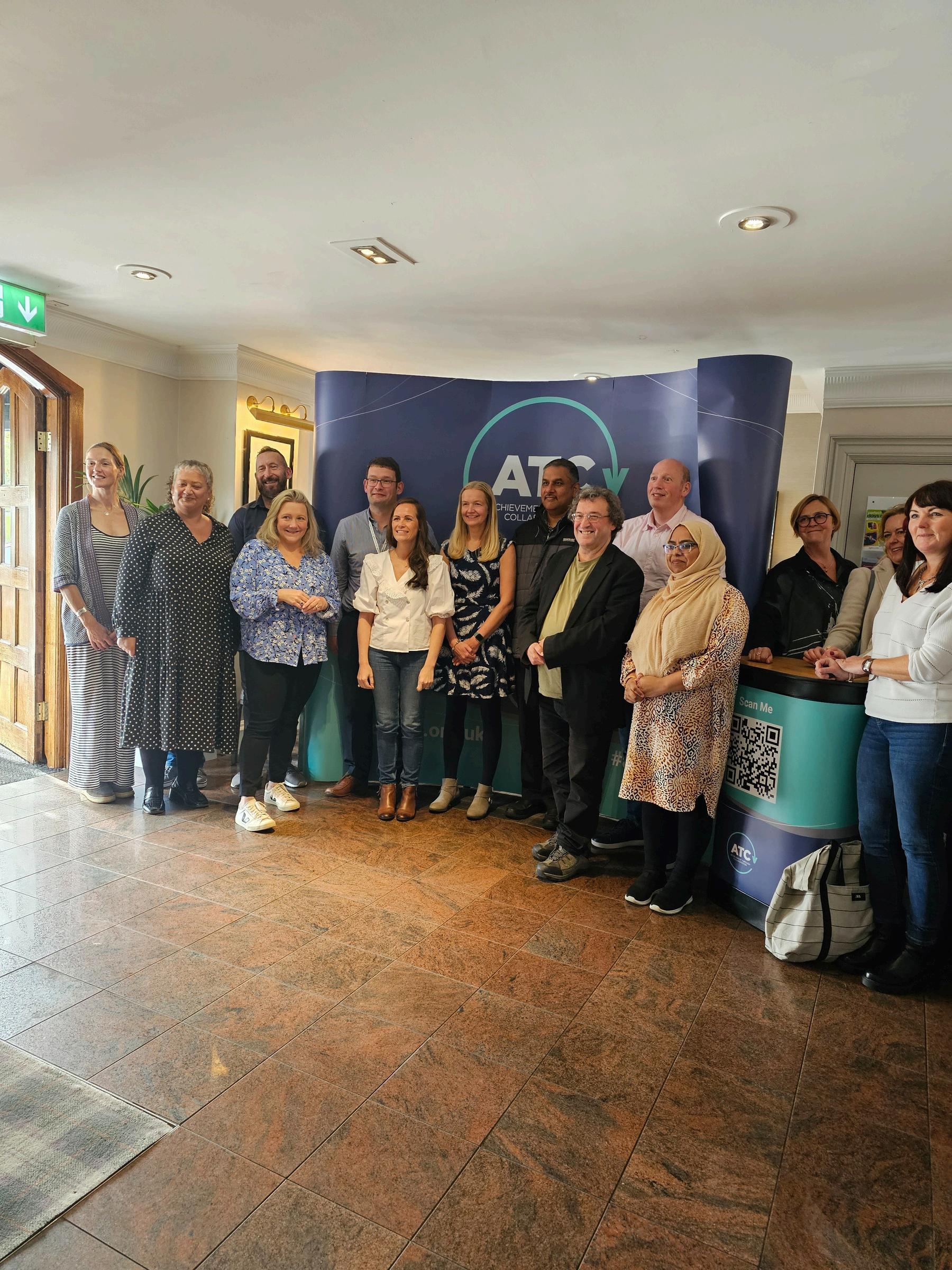
Governance is a integral part of effective leadership and ATC trust is dedicated to ensuring the board is made up of trustees with the necessary expertise to fulfil its functions effectively, and that the board acts in accordance with the trust’s charitable objects.
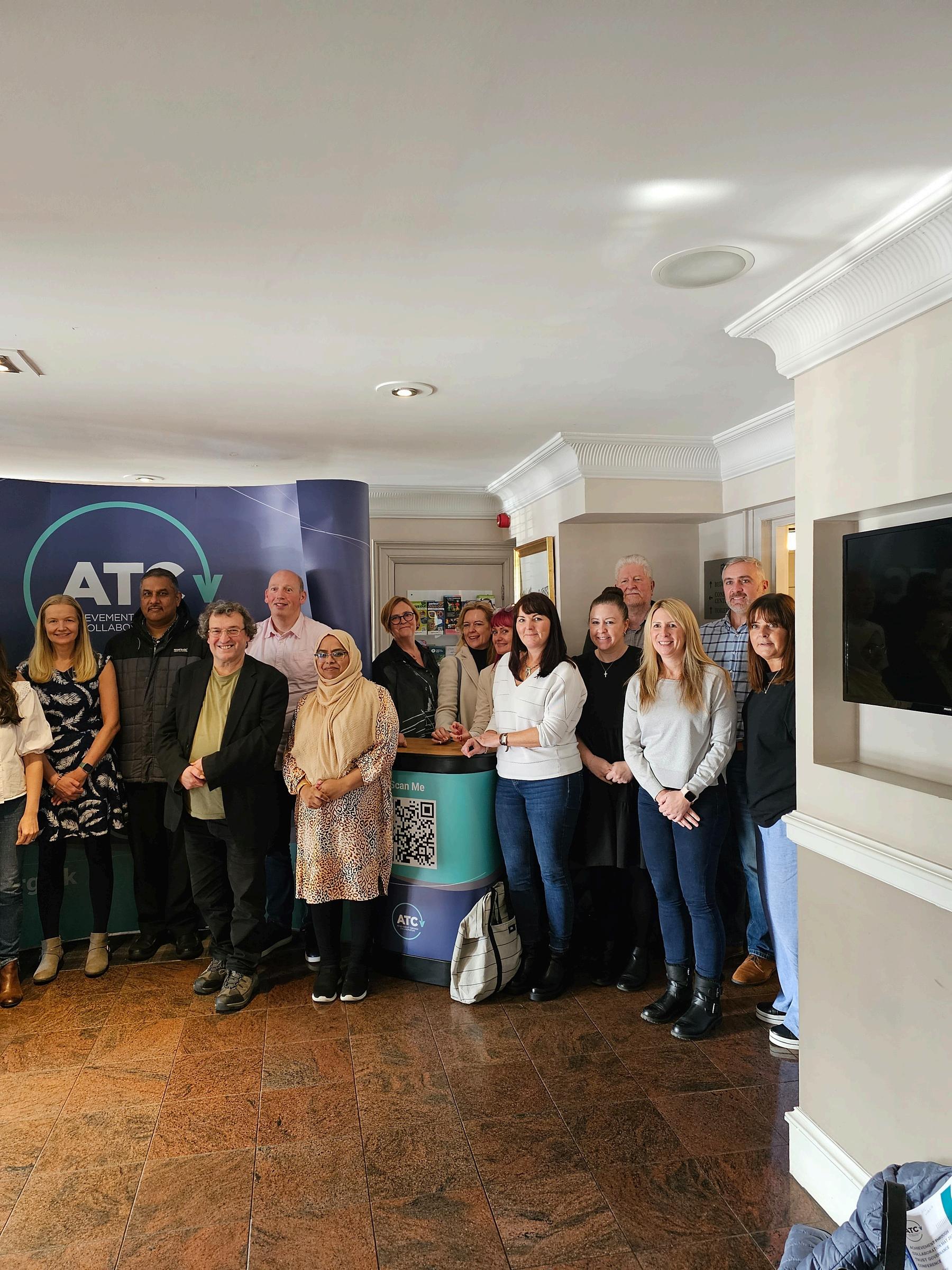
October 2023 saw the first annual governance conference hosted at the Tickled Trout hotel in Preston On a wet autumnal Saturday morning, following a week of flooding, the governors, trustees, school leaders and the central leadership team met to complete their first round of governance training with Janet Myers.
Discussion around the profile of highly effective school governance and trust leadership were explored and delegates participated with enthusiasm and wisdom What was apparent from the day was the dedication of colleagues and the passion and commitment felt by all in ensuring our schools and our Trust is successful.


Dear Victoria Whiting,
I hope you enjoyed the vibrant atmosphere at the Festival last week and have come away with new ideas and memorable experiences I want to extend our deepest gratitude for your invaluable contribution to the 14th Festival of Education
We hope you found the experience fulfilling, enjoyed engaging with enthusiastic audiences, and valued connecting with fellow educators.
As with any event, your insights and feedback will be immensely valuable as we plan for future festivals, so I would very much appreciate any notes you are happy to share with me.
Your dedication to education and the positive impact you make on our attendees is key to the Festival's success As the event continues to grow and reach new audiences, your ongoing support is vital to our mission to inspire, instigate, and make a significant impact on the sector
Once again, thank you for being an essential part of the experience and helping to create such a successful and memorable event
V. Boyle Speaker Manager, Festival of Education
ATC Trust are dedicated to leading and joining the broader conversations in education It is vital, that as a Trust, we have a place at the table when conversations around change, innovation and strategic action are being made We were delighted to be invited to speak and present at a number of national and international events last year and have been able to share information and insights with colleagues from across our organisation
Events:
EduTech Europe Amsterdam Oct 2023
MATPN Nottingham Nov 2024
BETT London Jan 2024
Festival of Education July 2025
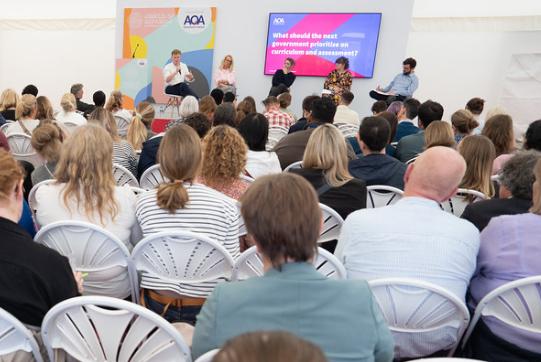
EDITOR
VICTORIA WHITING
OUR CONTRIBUTORS
RICHARD SPENCER
Teacher at Bowland High School
ZAITOON BUKHARI
Director of Digital Learning ATC Trust
ROGER FARLEY
Headteacher Rosecare Primary School
MEGAN BAKER
Teacher at Roseacre Primary School
SARAH TAYLOR
Assistant Headteacher Roseacre Primary school
TRACY HARRISON
Deputy CEO ATC Trust
WILL AMES
CFO at ATC Trust
BETH LEWIS & ROSIE KAUSAR
HR team at ATC Trust
IF YOU WOULD LIKE TO CONTRIBUTE TO THE PUBLICATION, PLEASE CONTACT THE EDUCATION TEAM

EMMA STAMFORD
Teacher Roseacre Primary School
KATHRYN JOHNSON, HELEN JOHNSON, ZIYAD ADAM, JESS BLACKBURN
Finance Team ATC Trust
ANTHONY KEEFE & NEIL HAYES
School leaders - Bowland and Witton Park
JOANNE COLLING
AAHT Witton Park Academy

